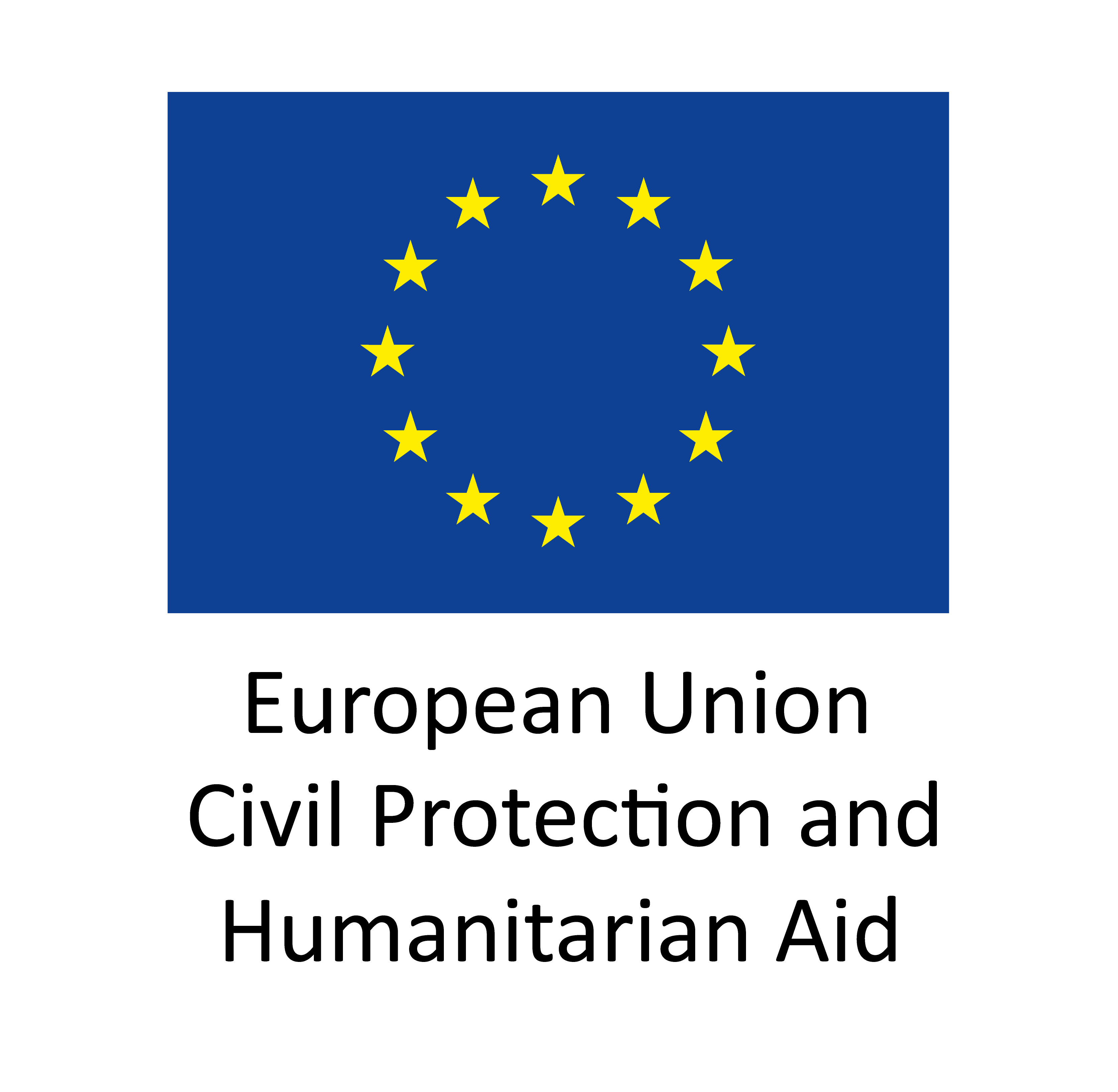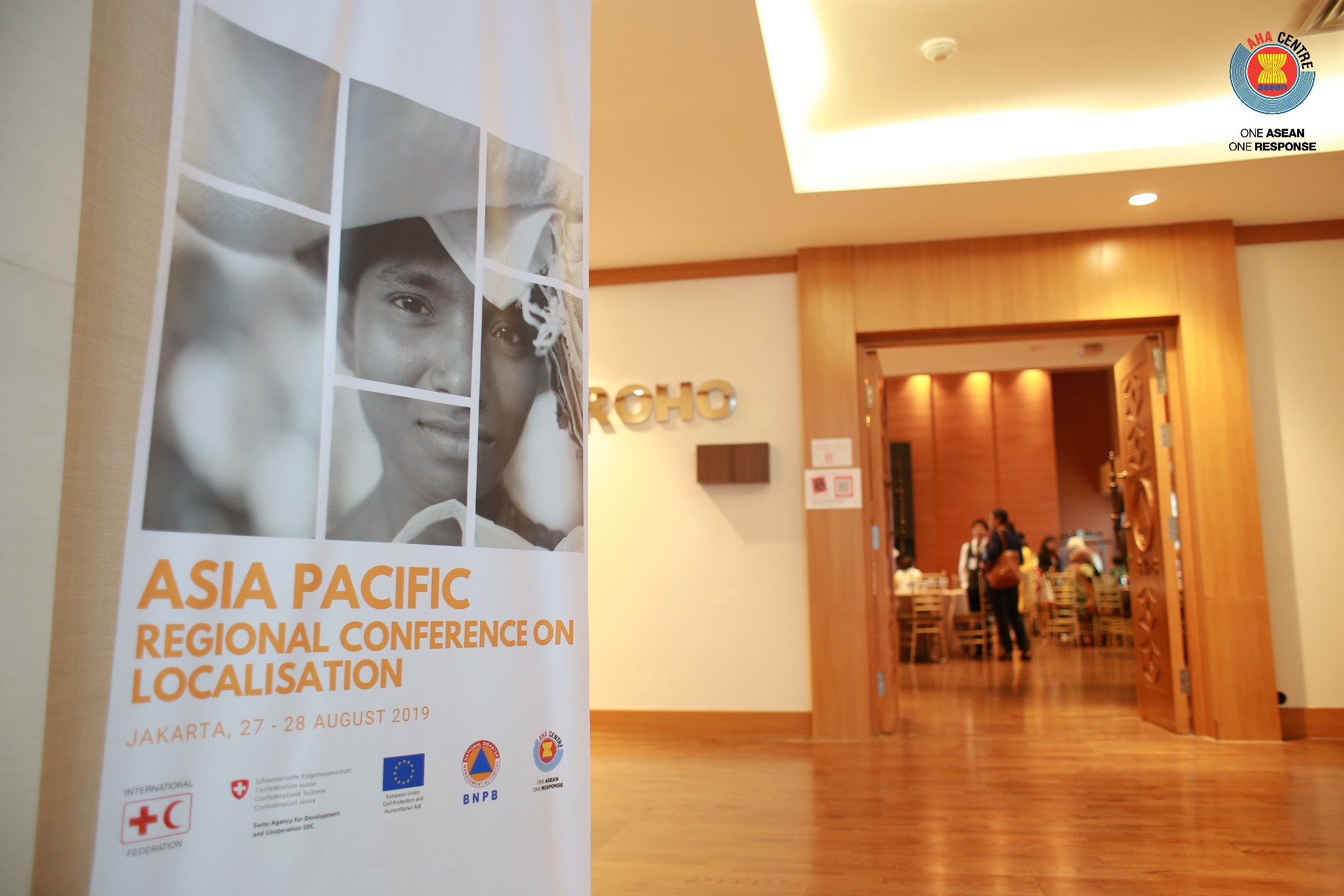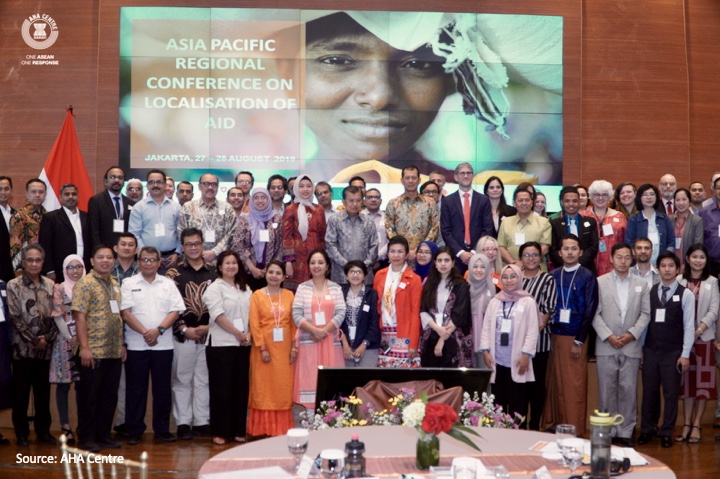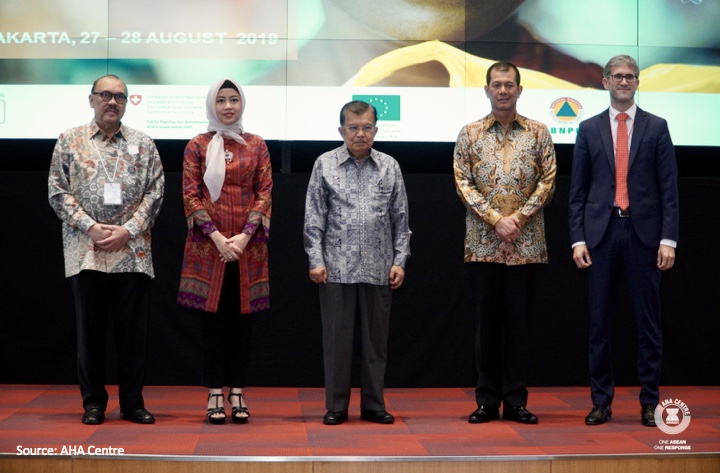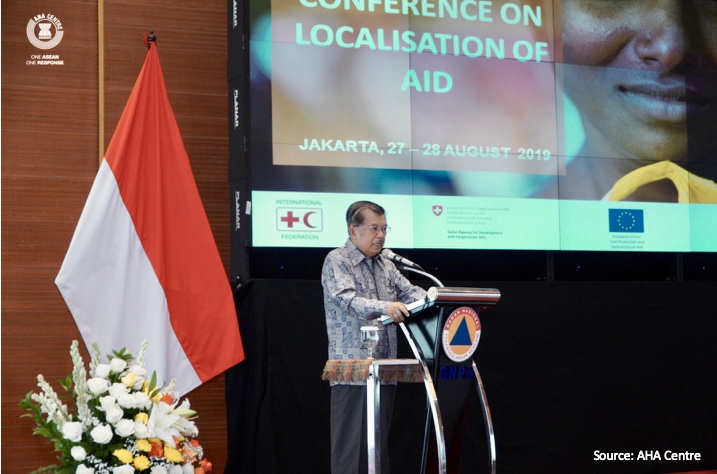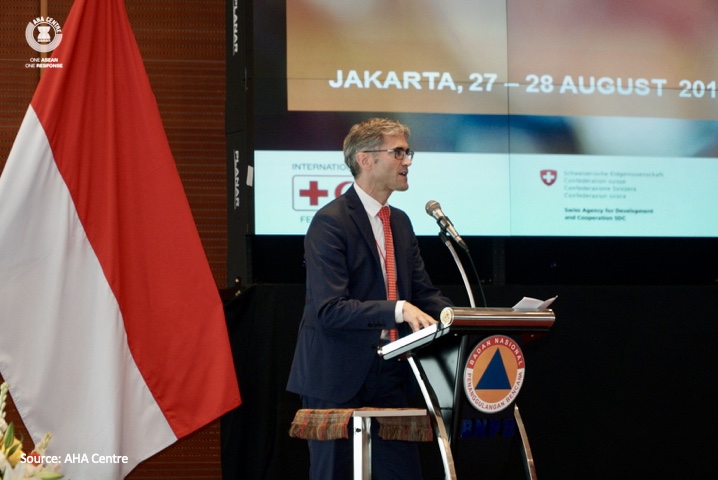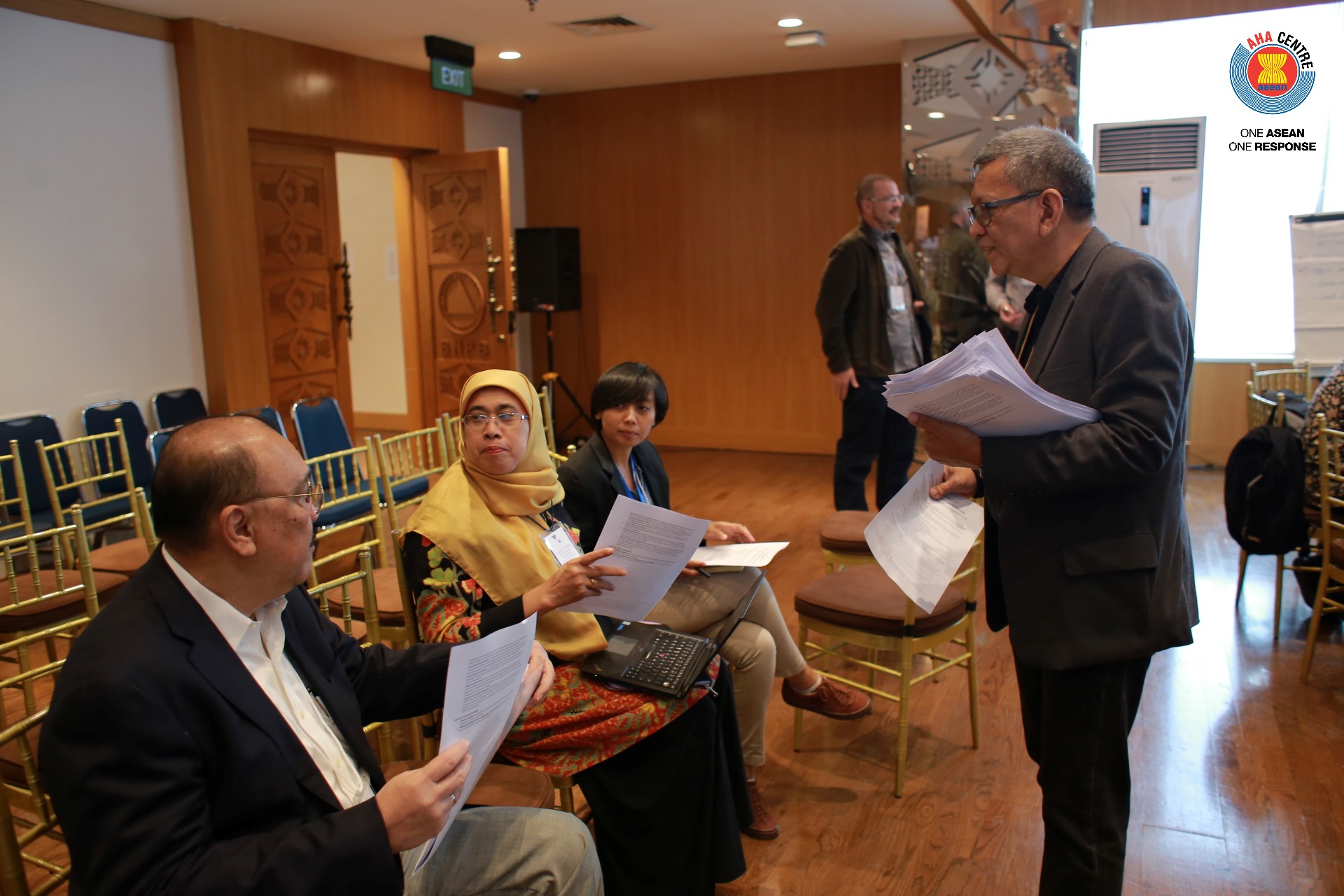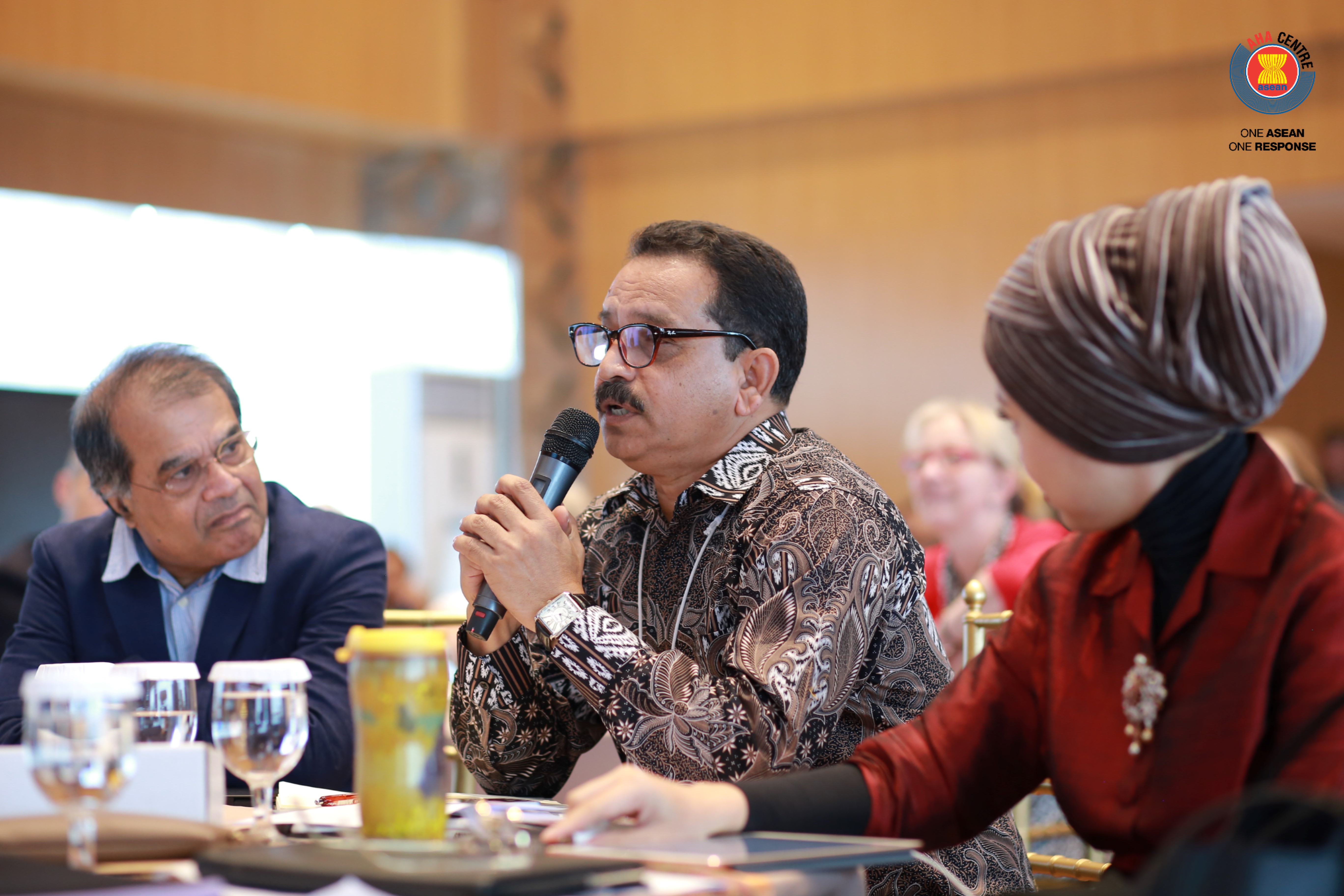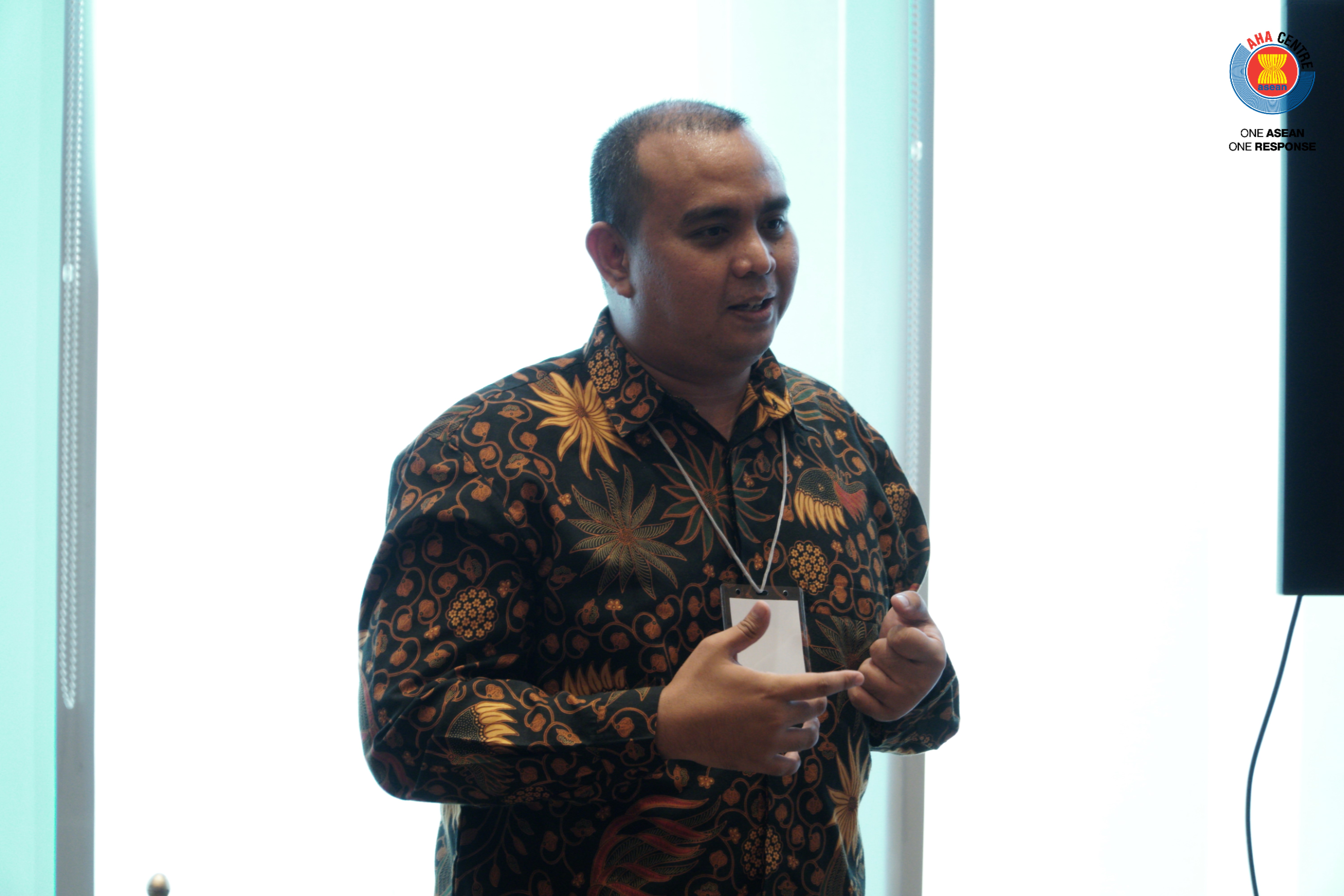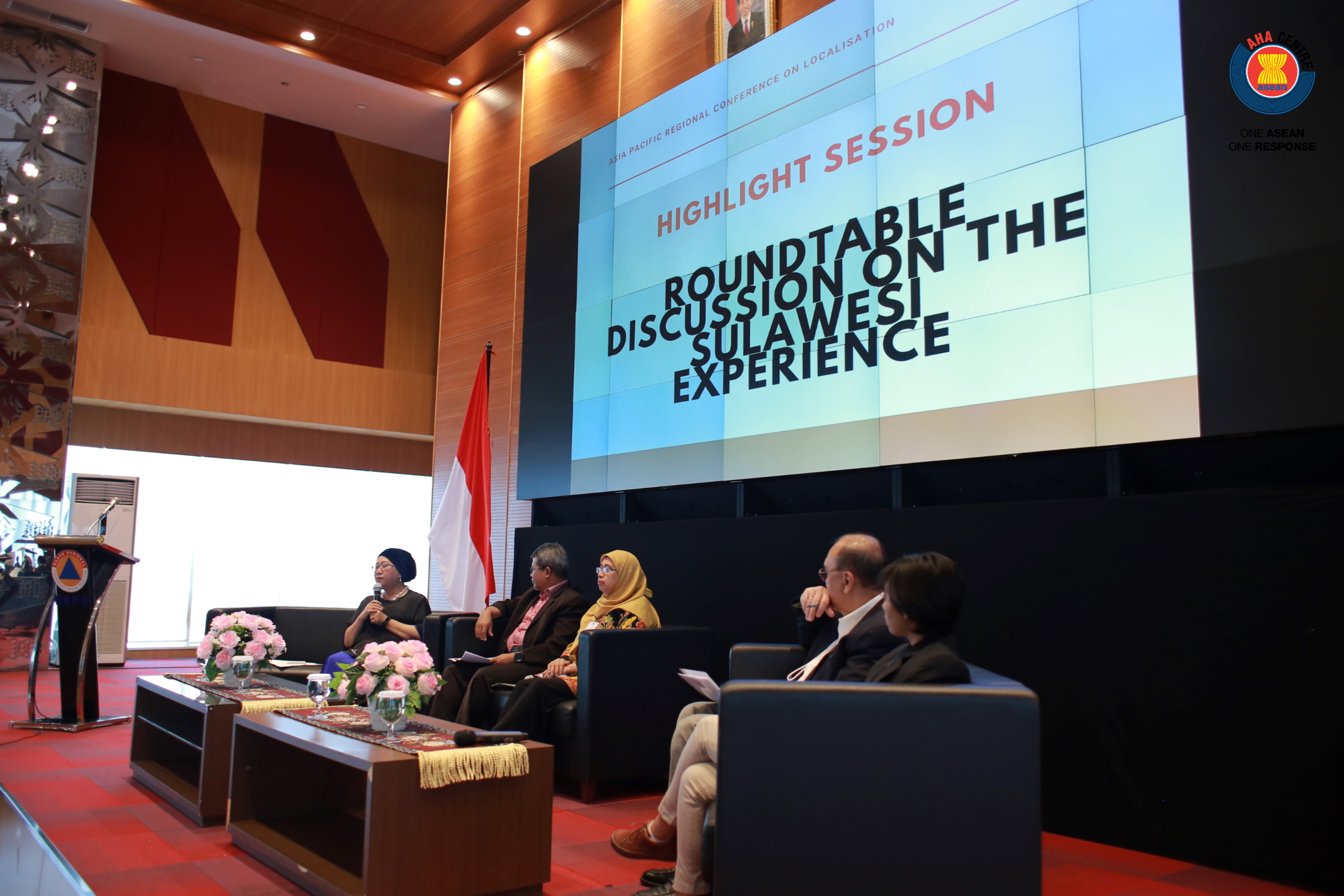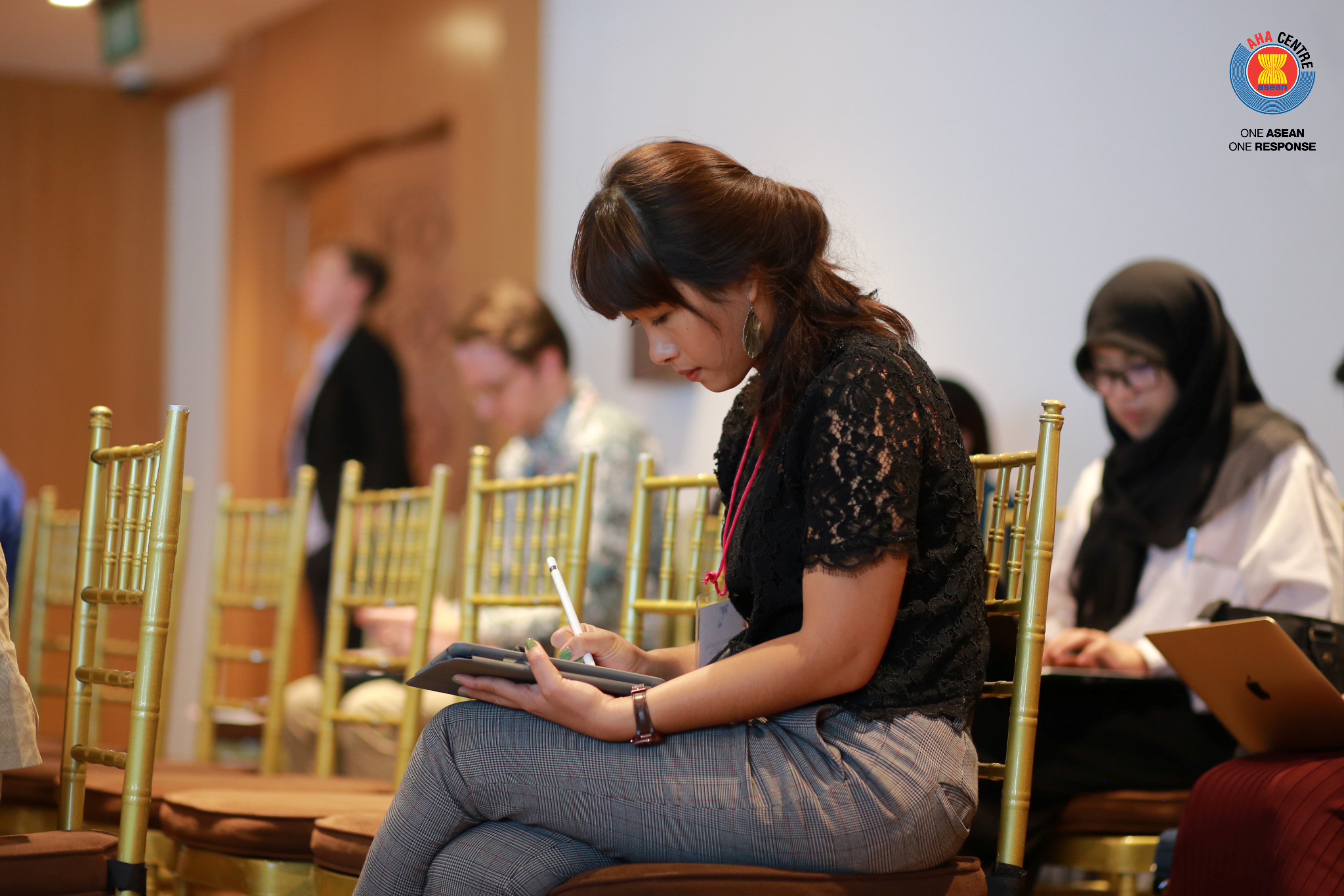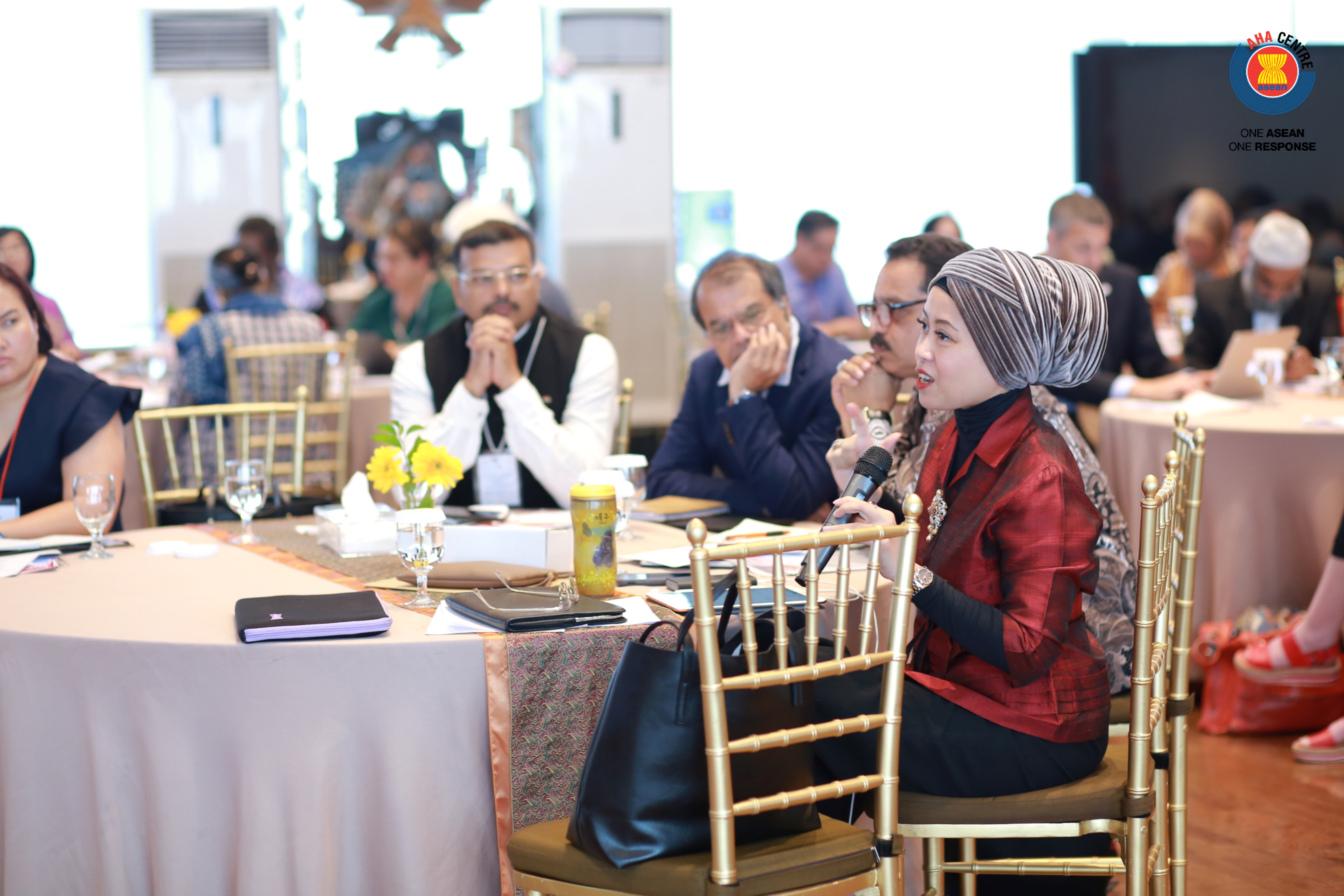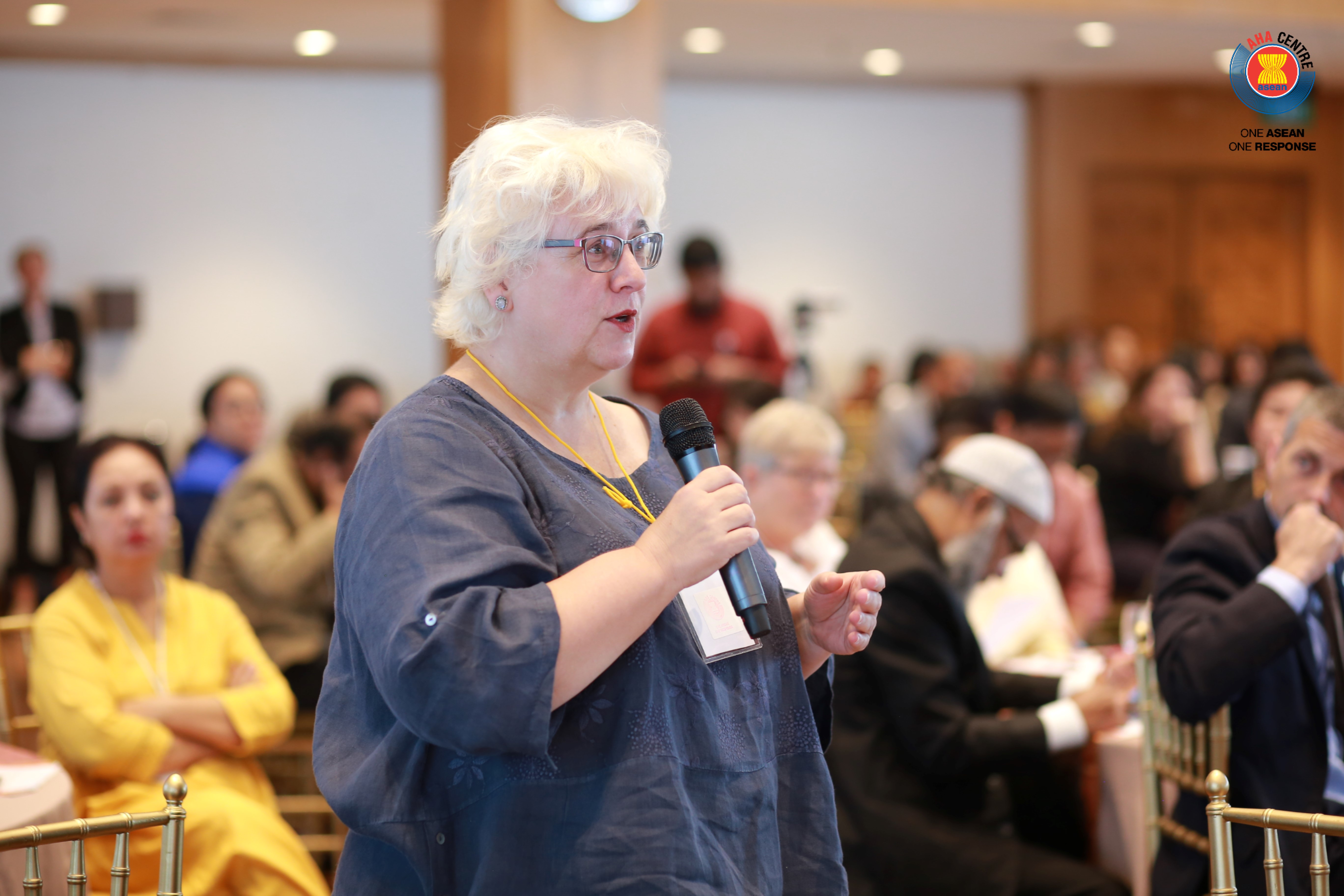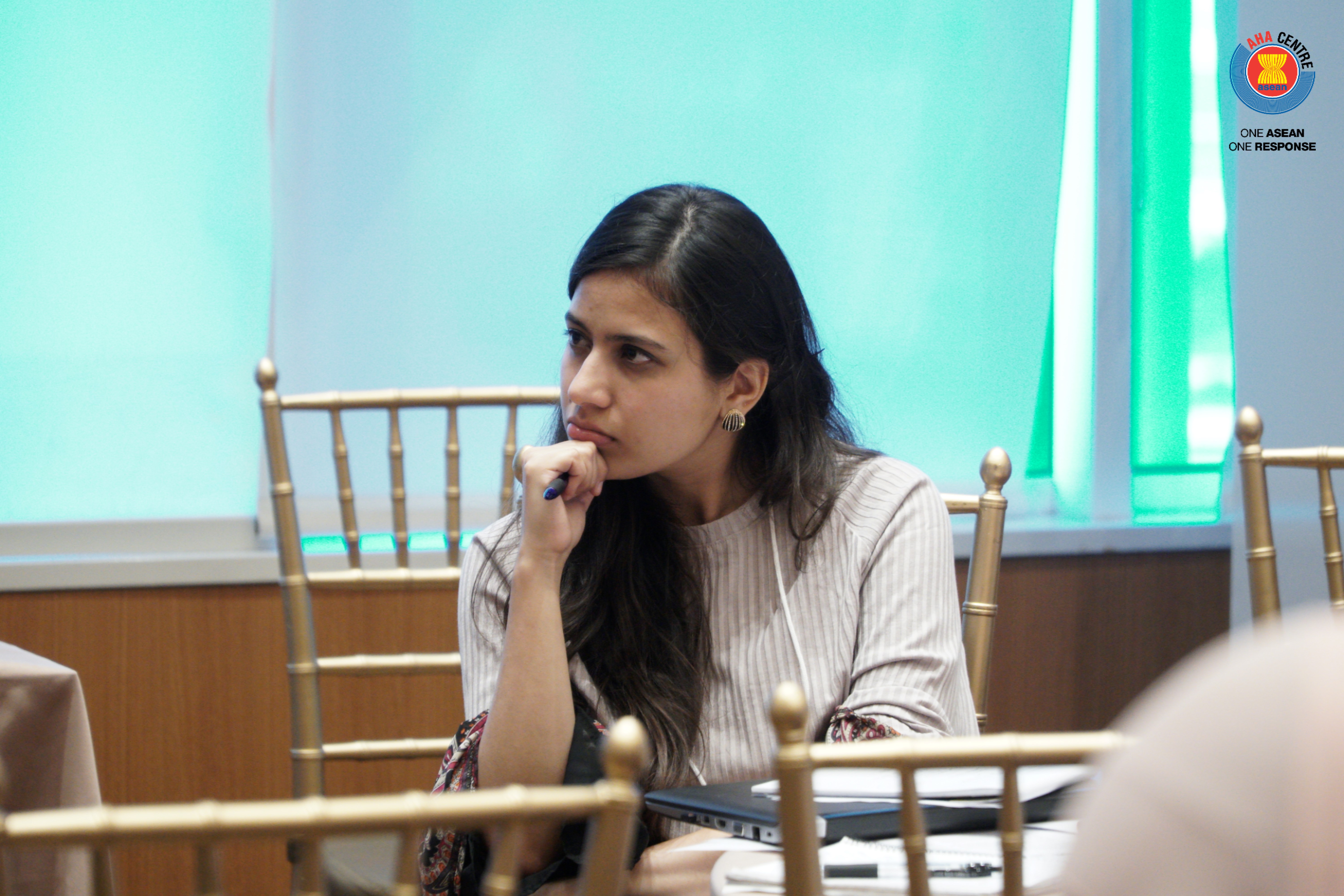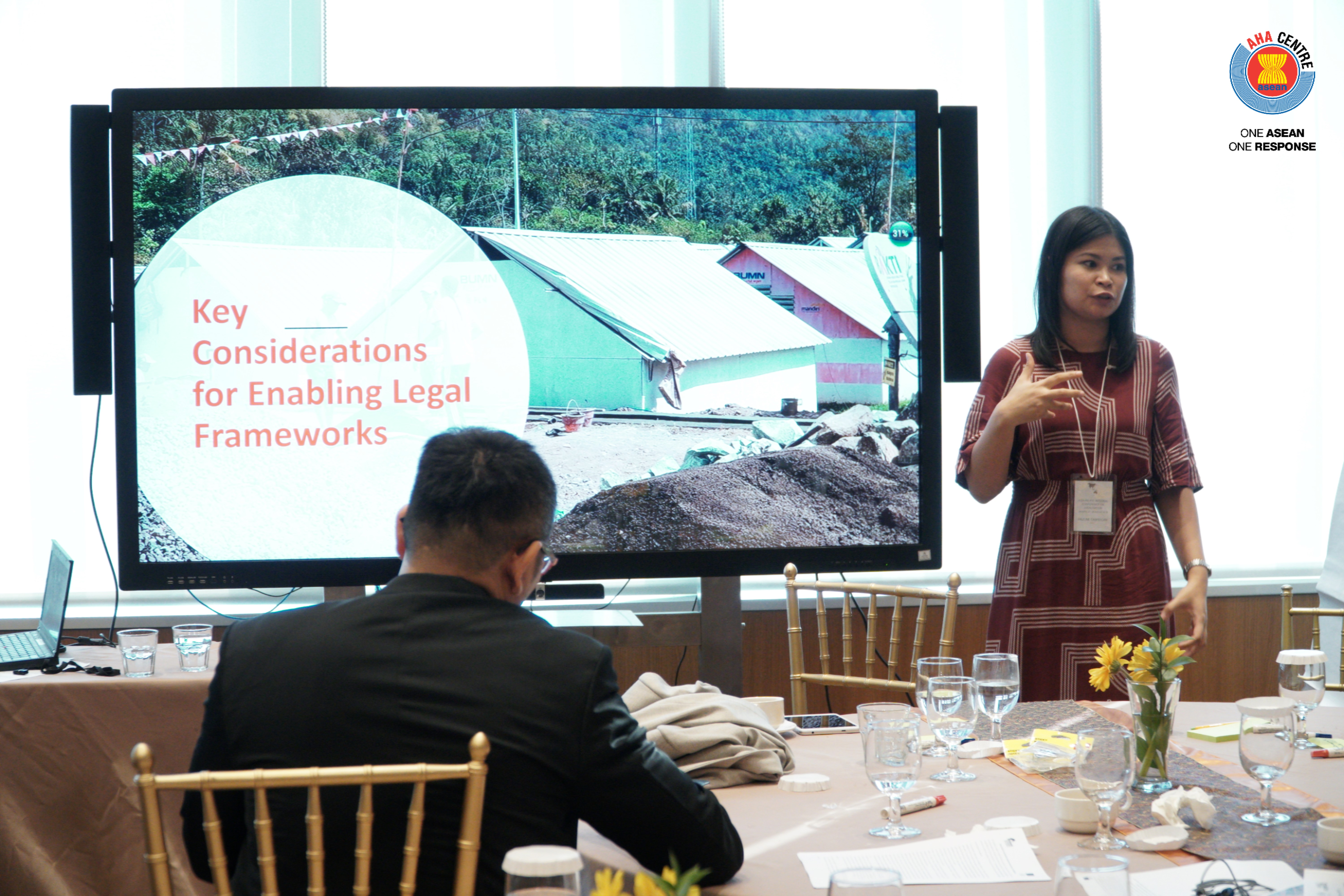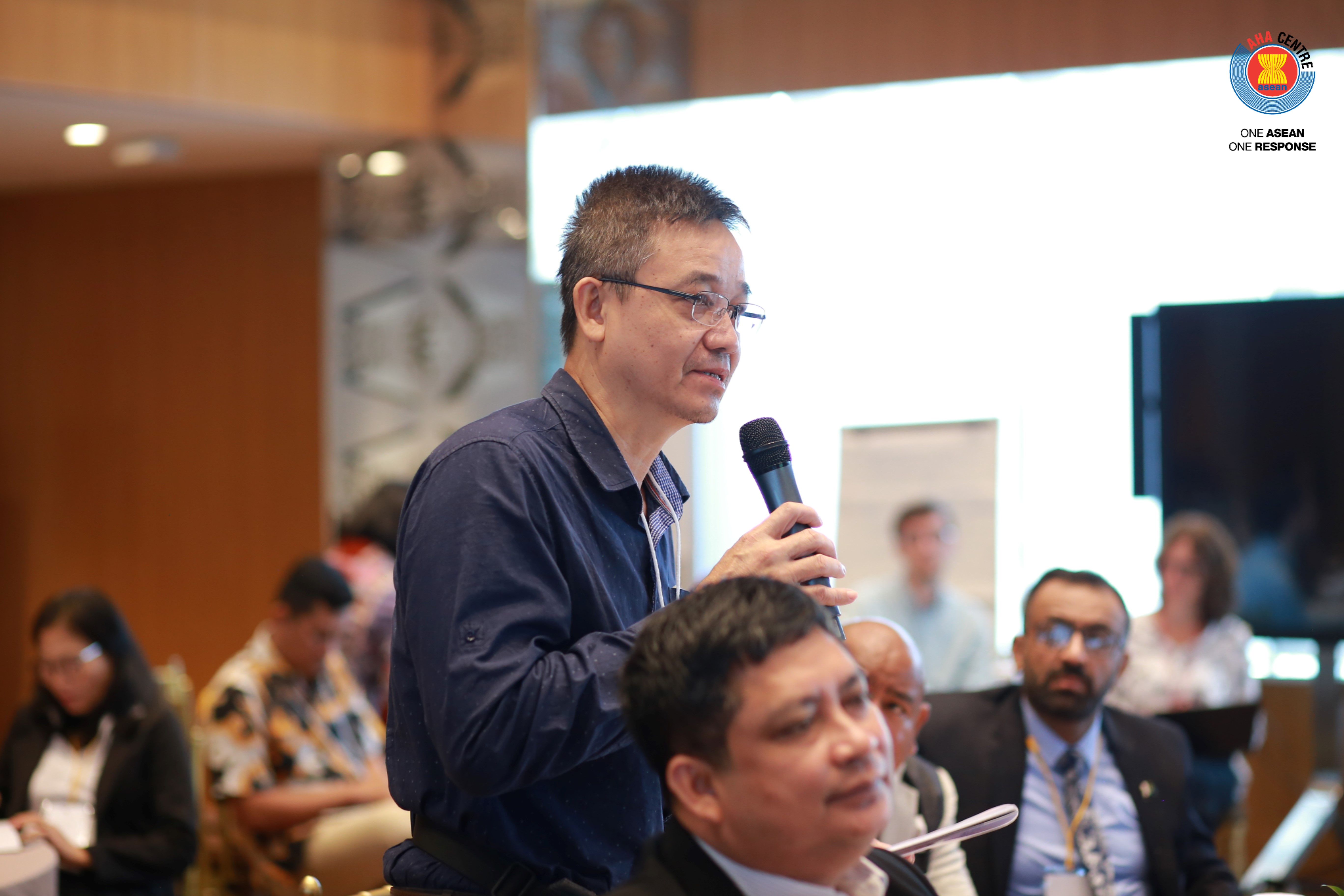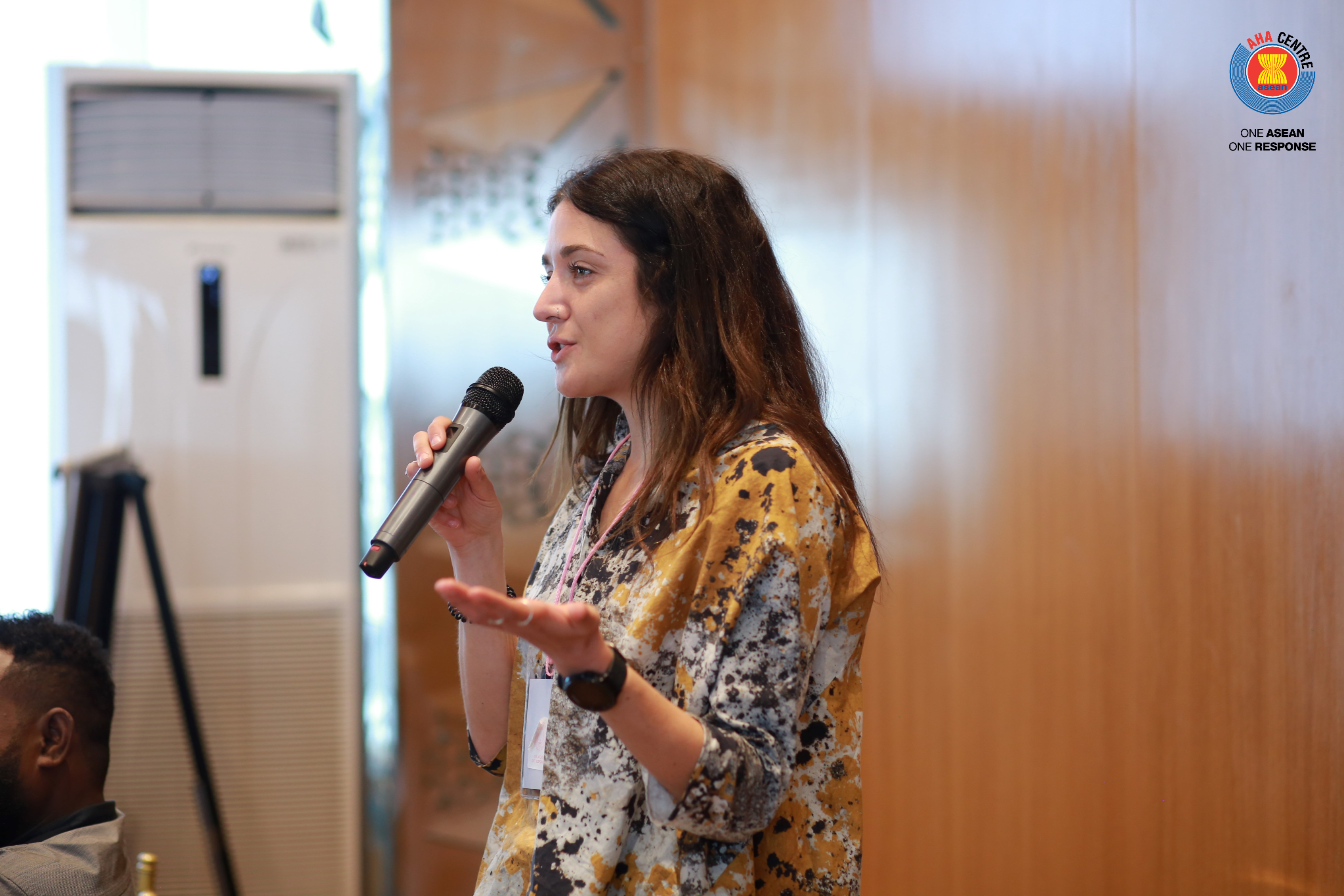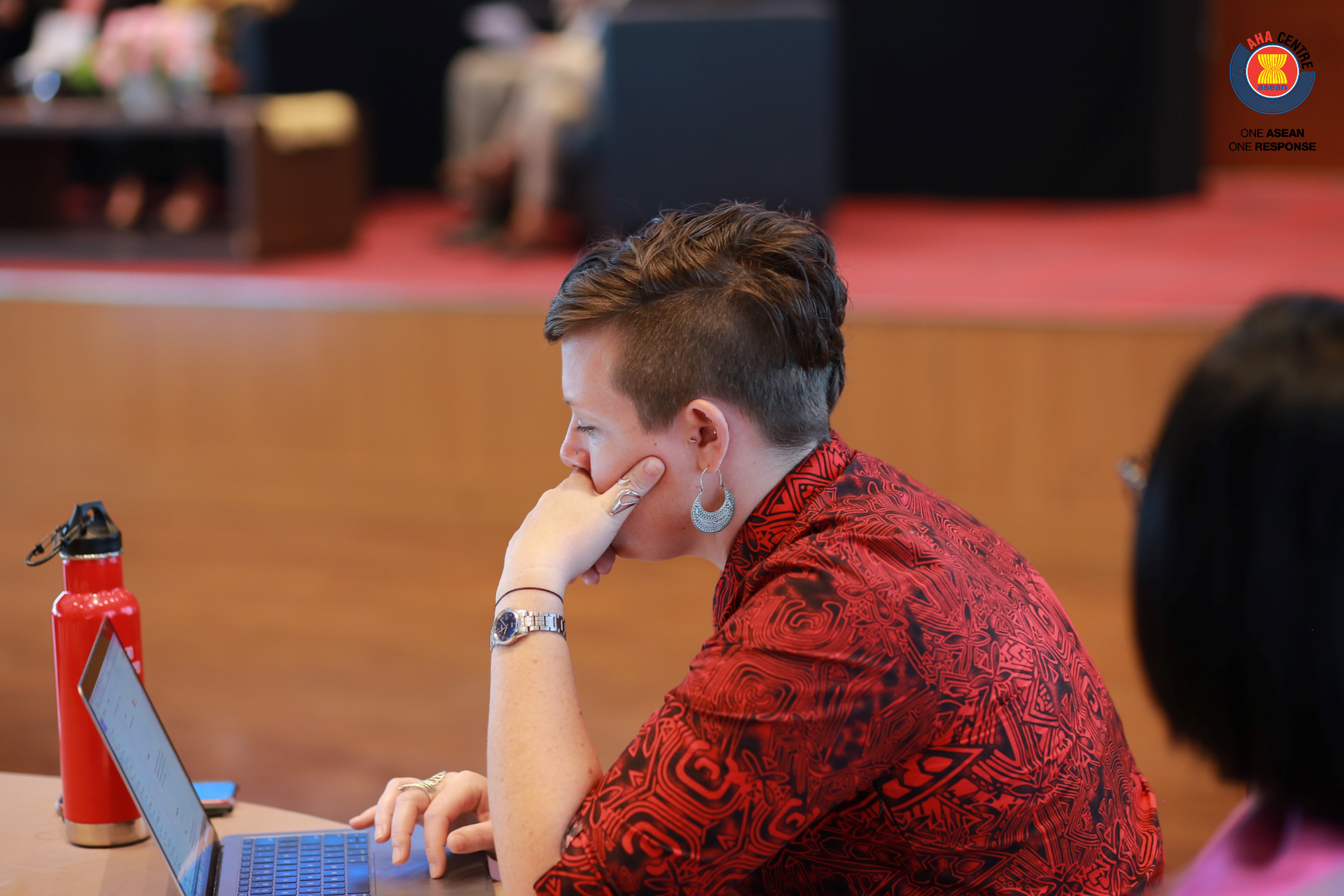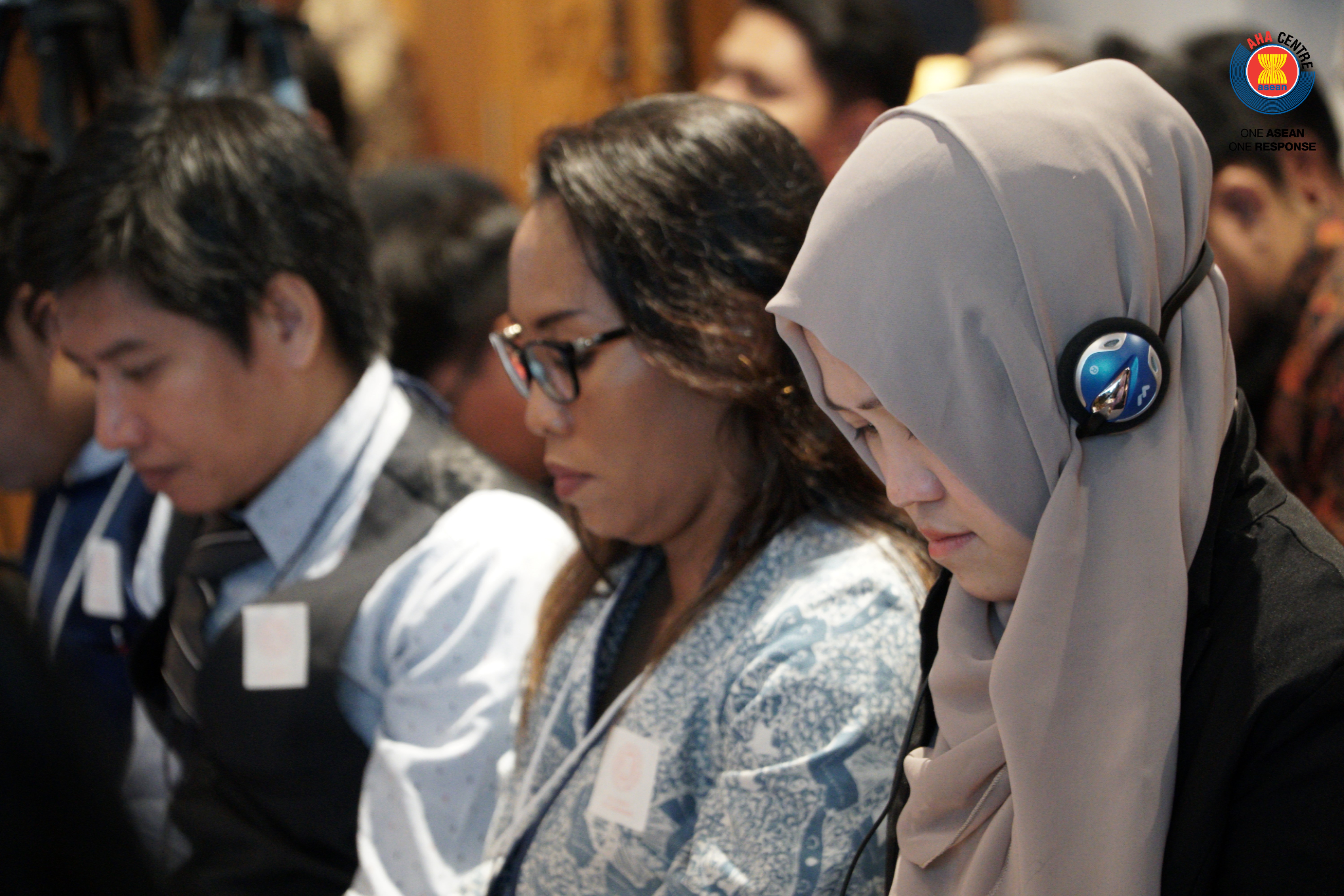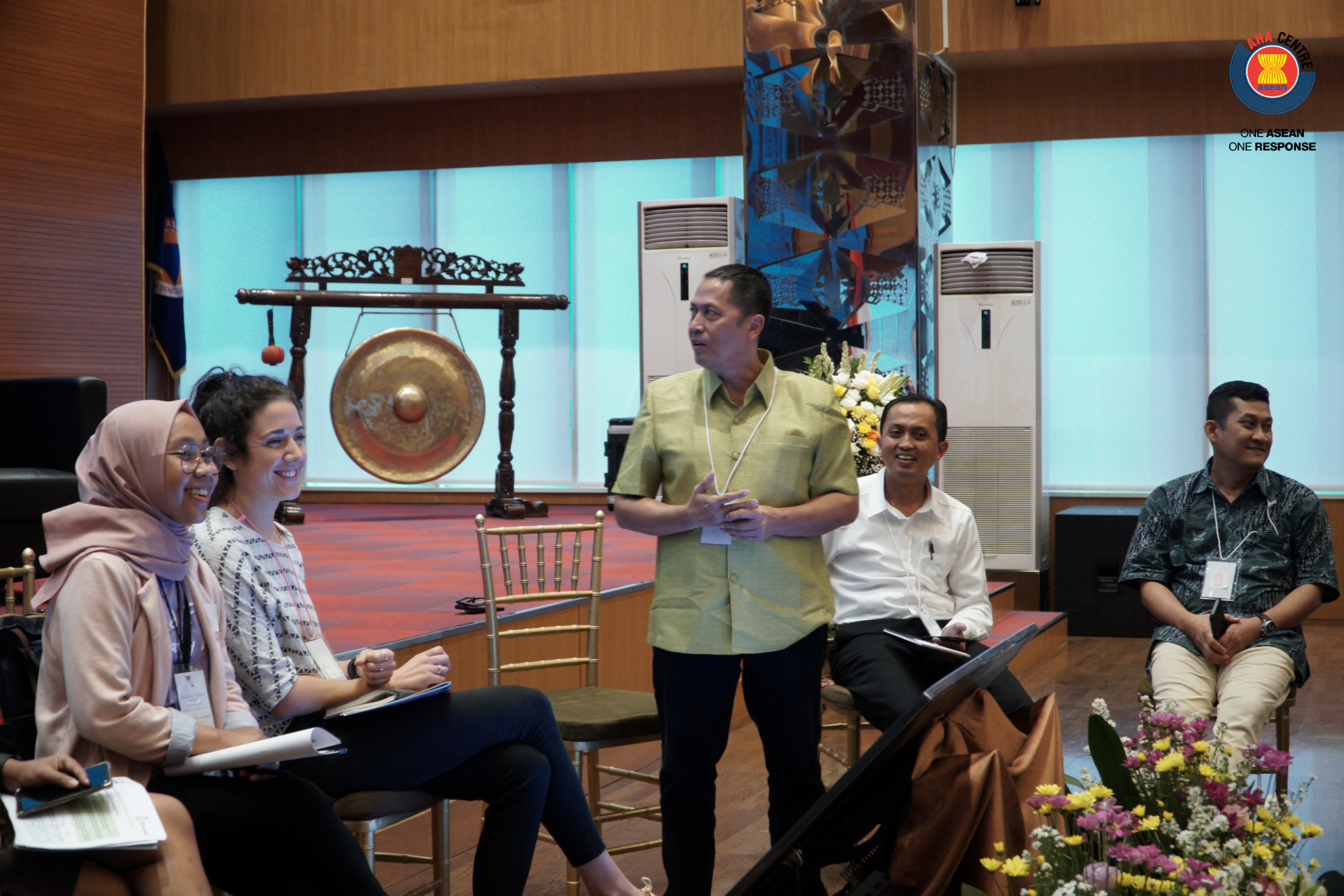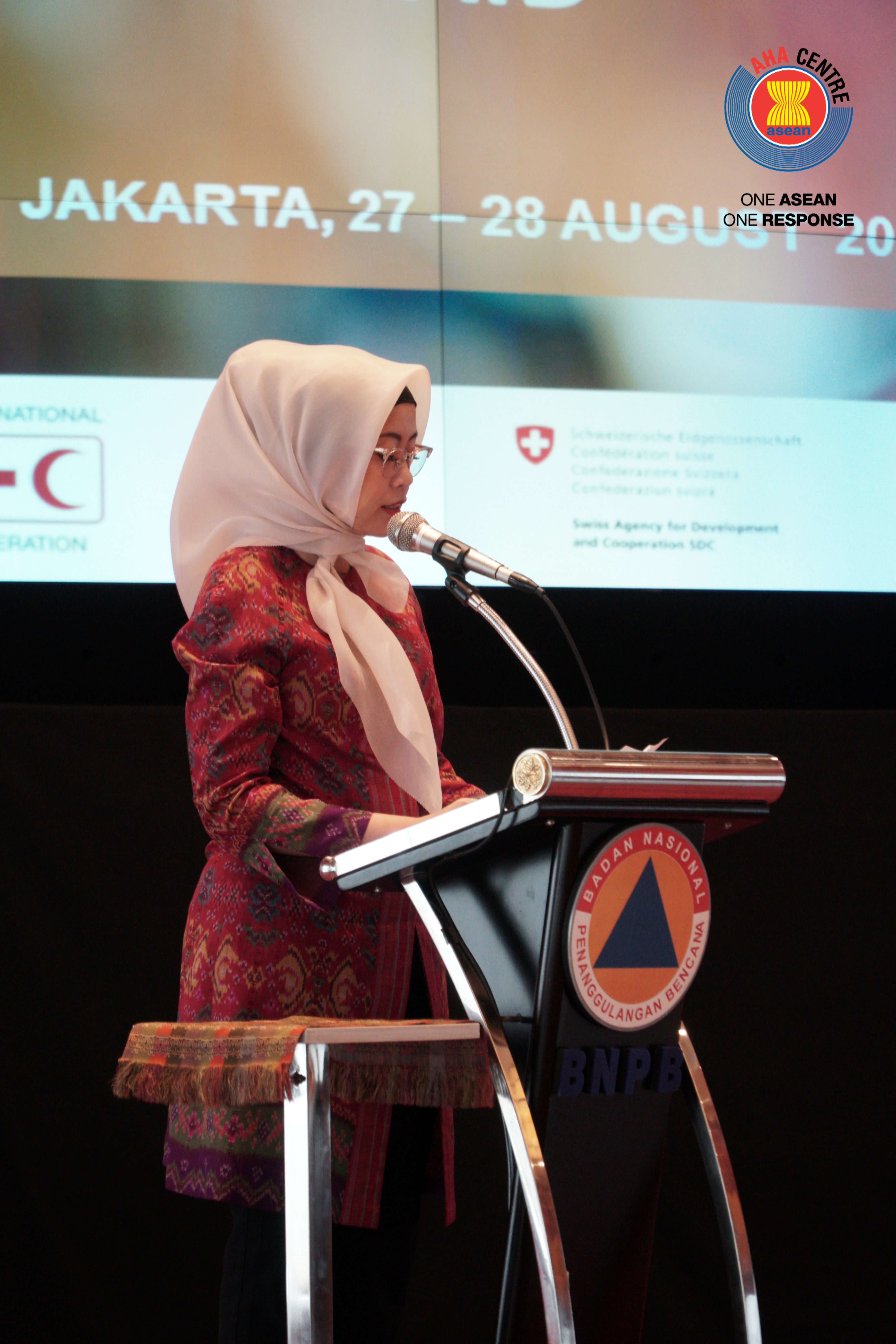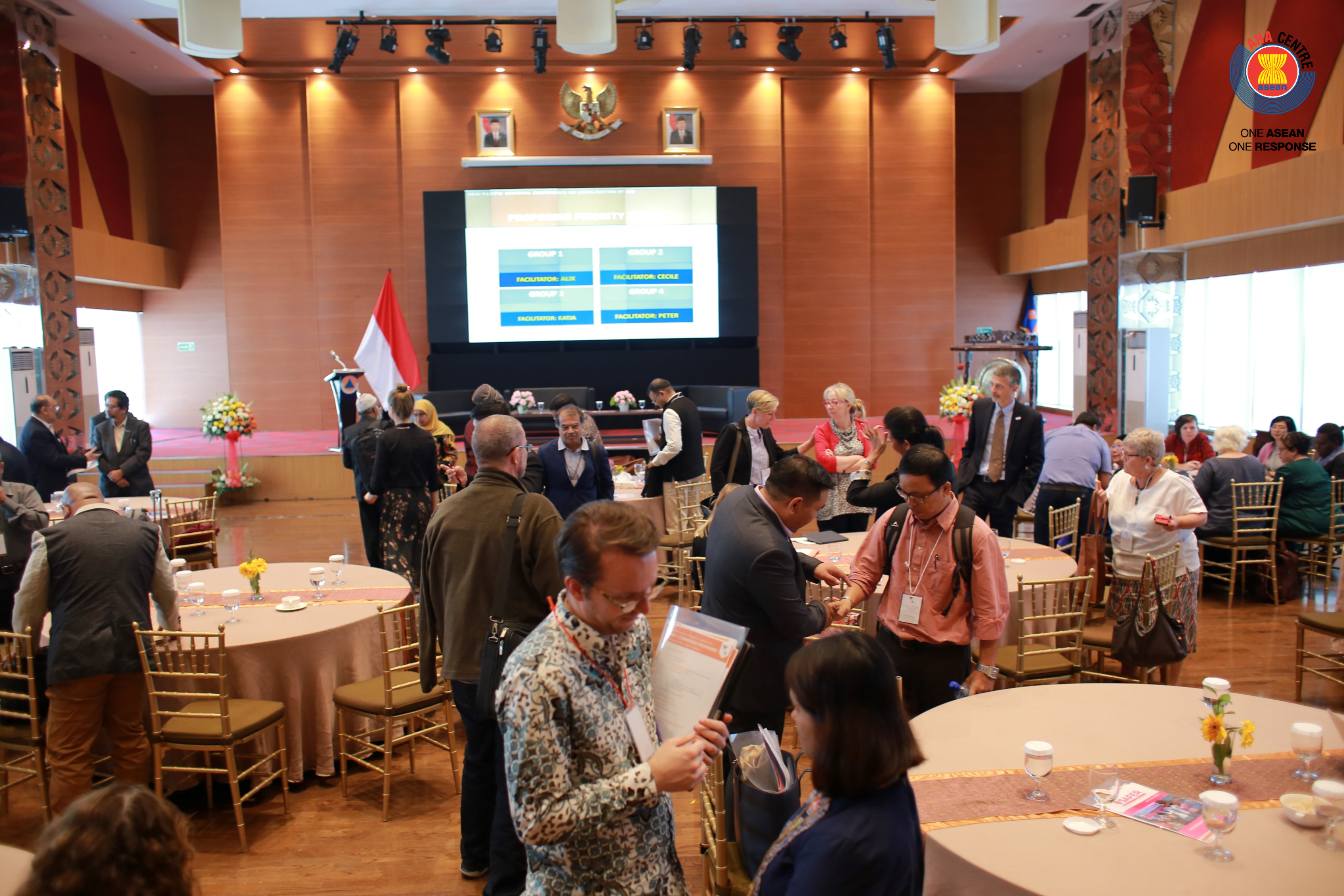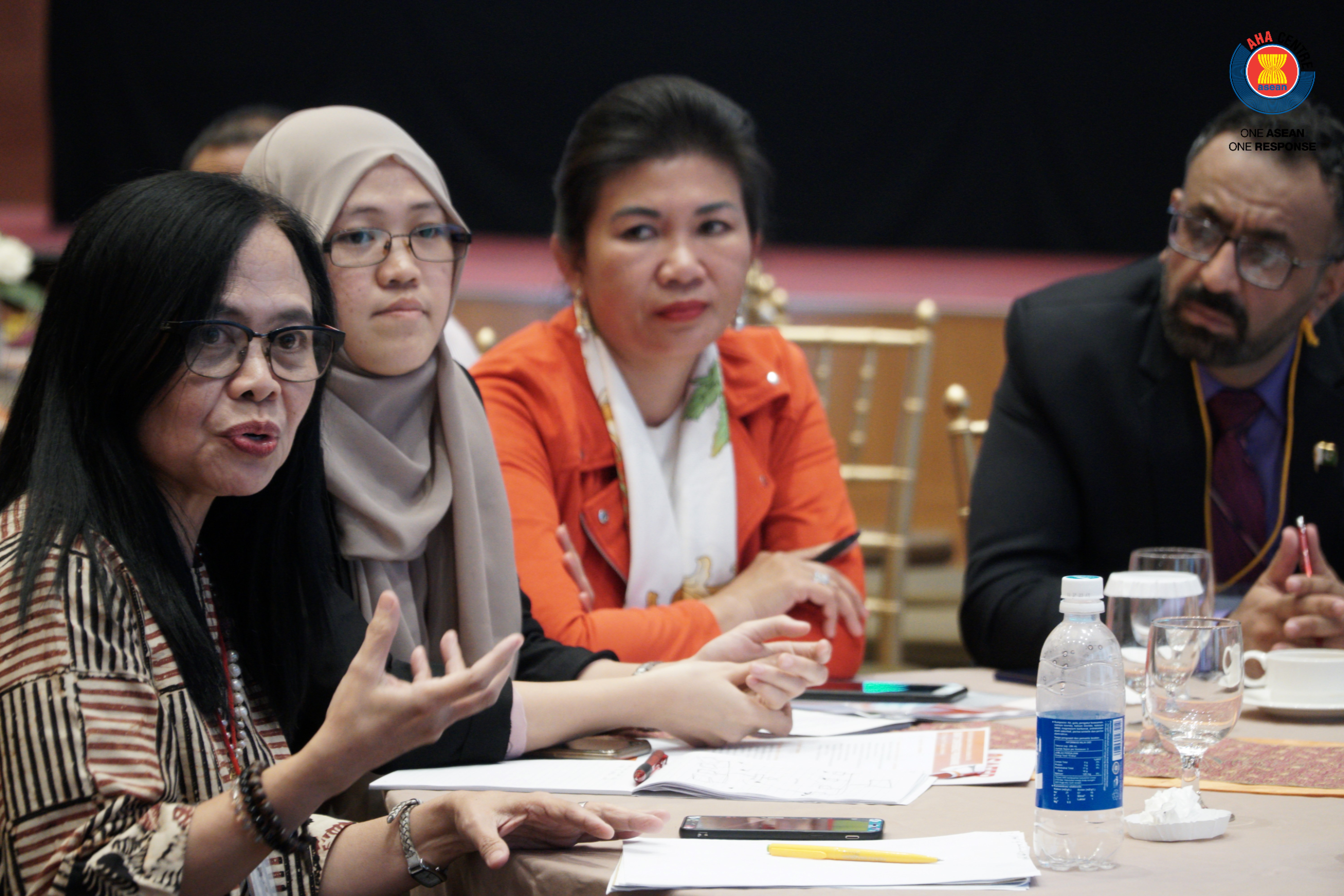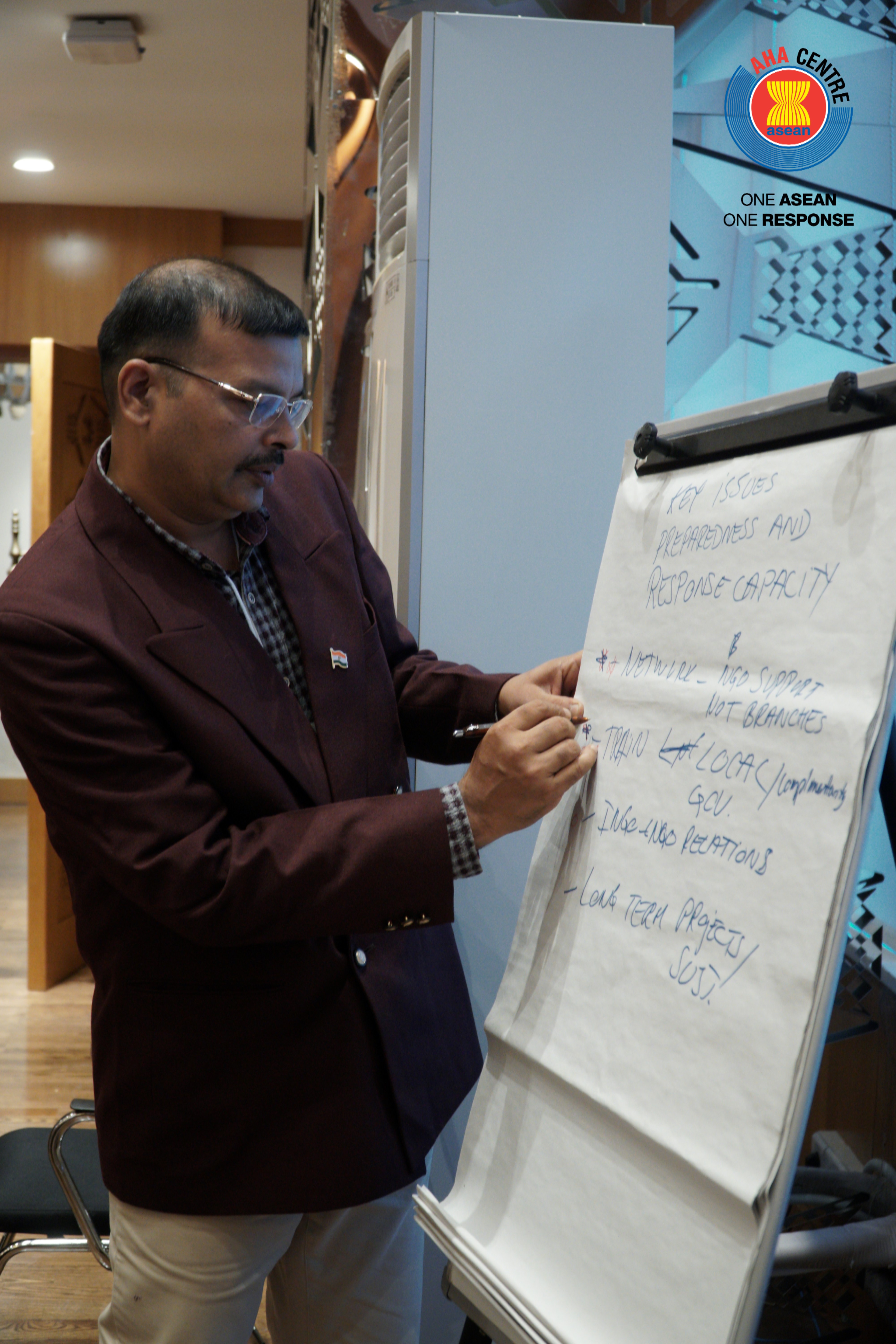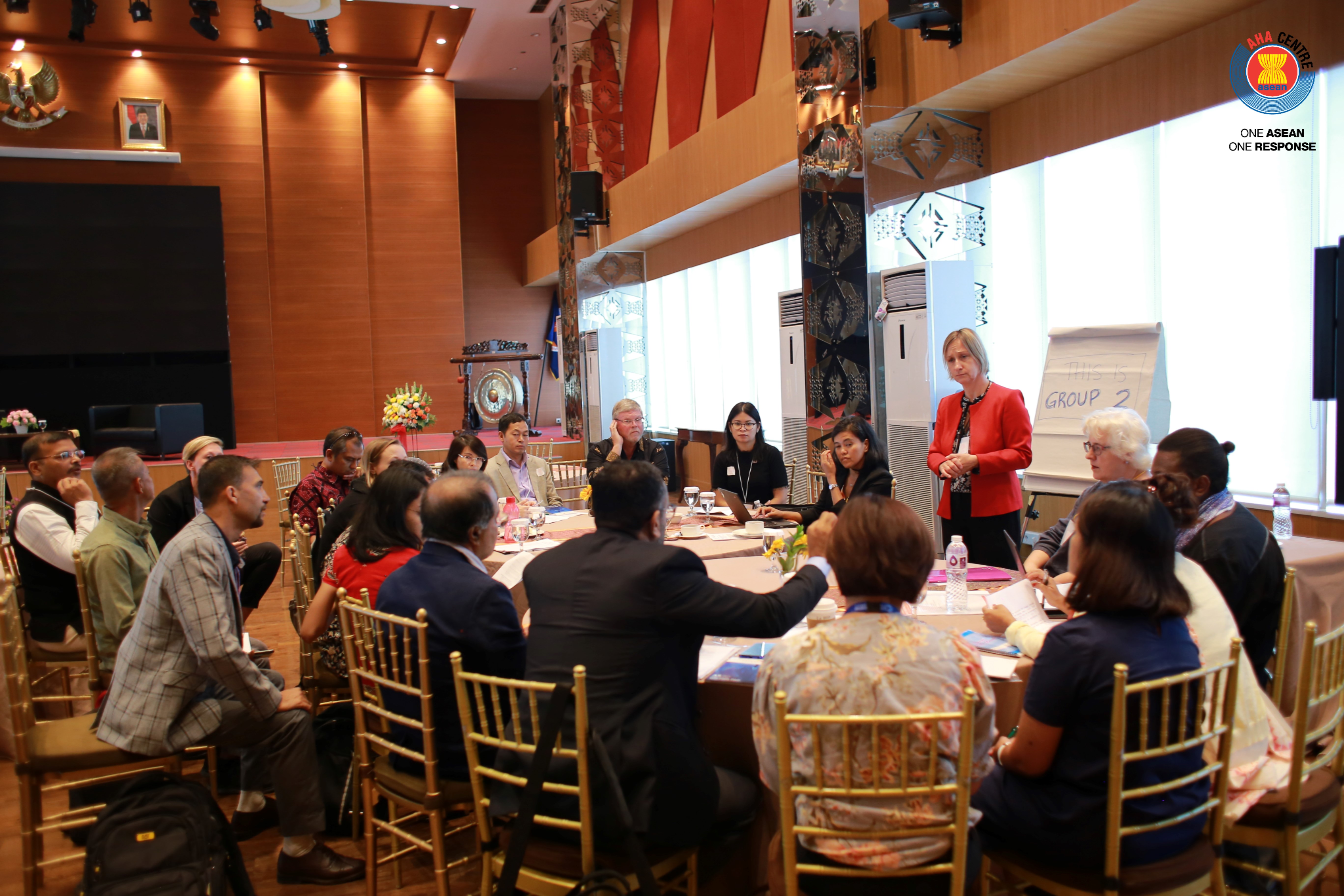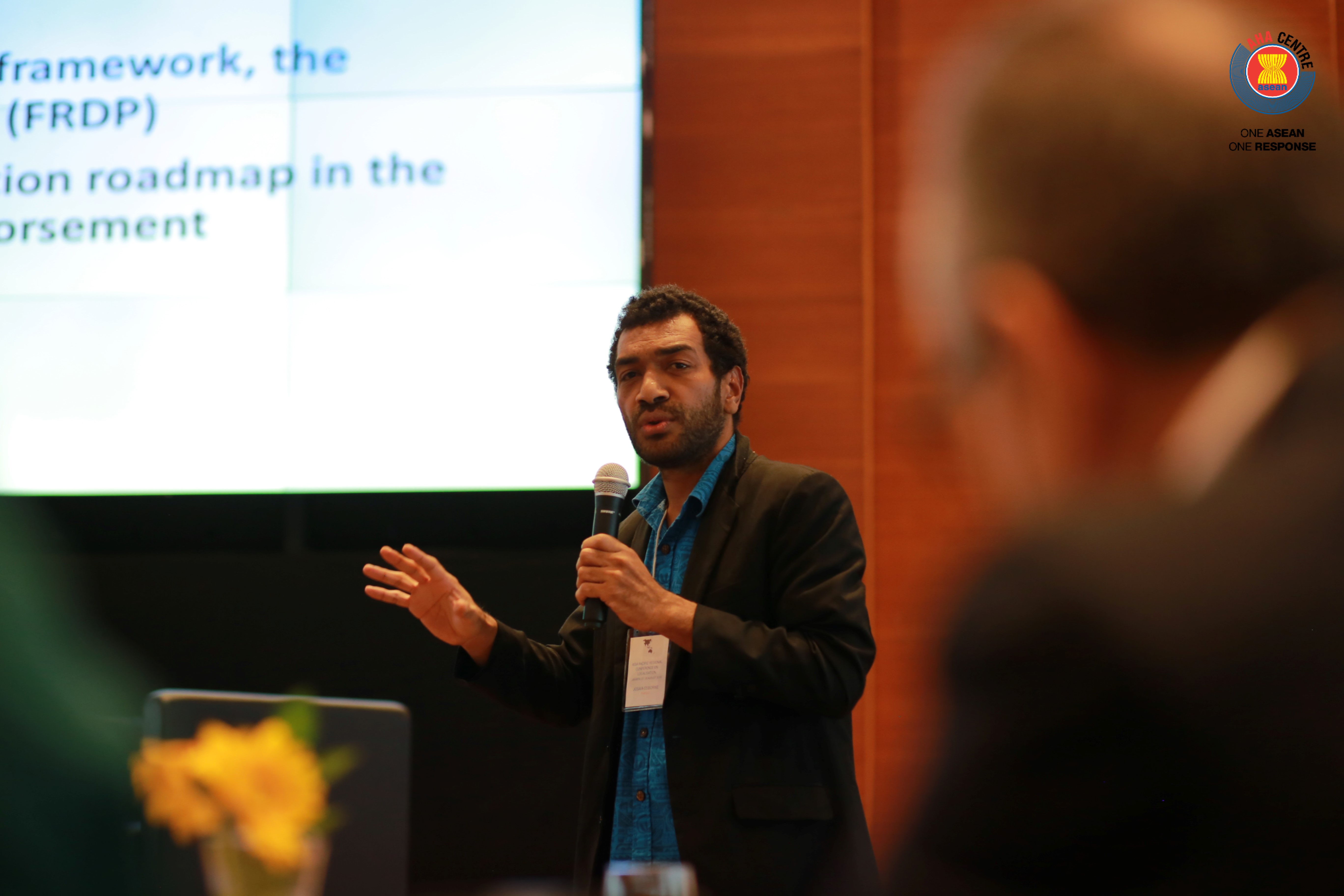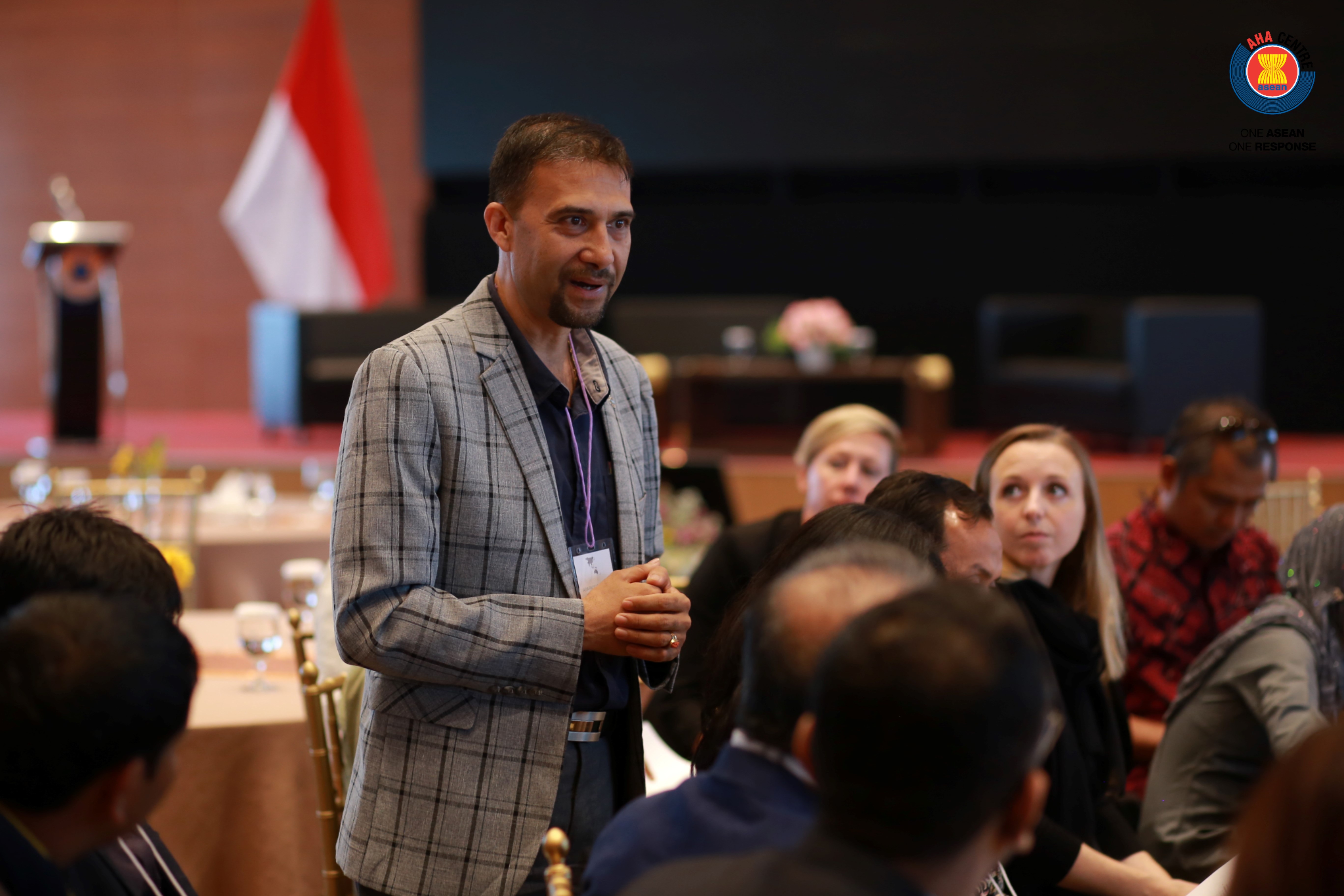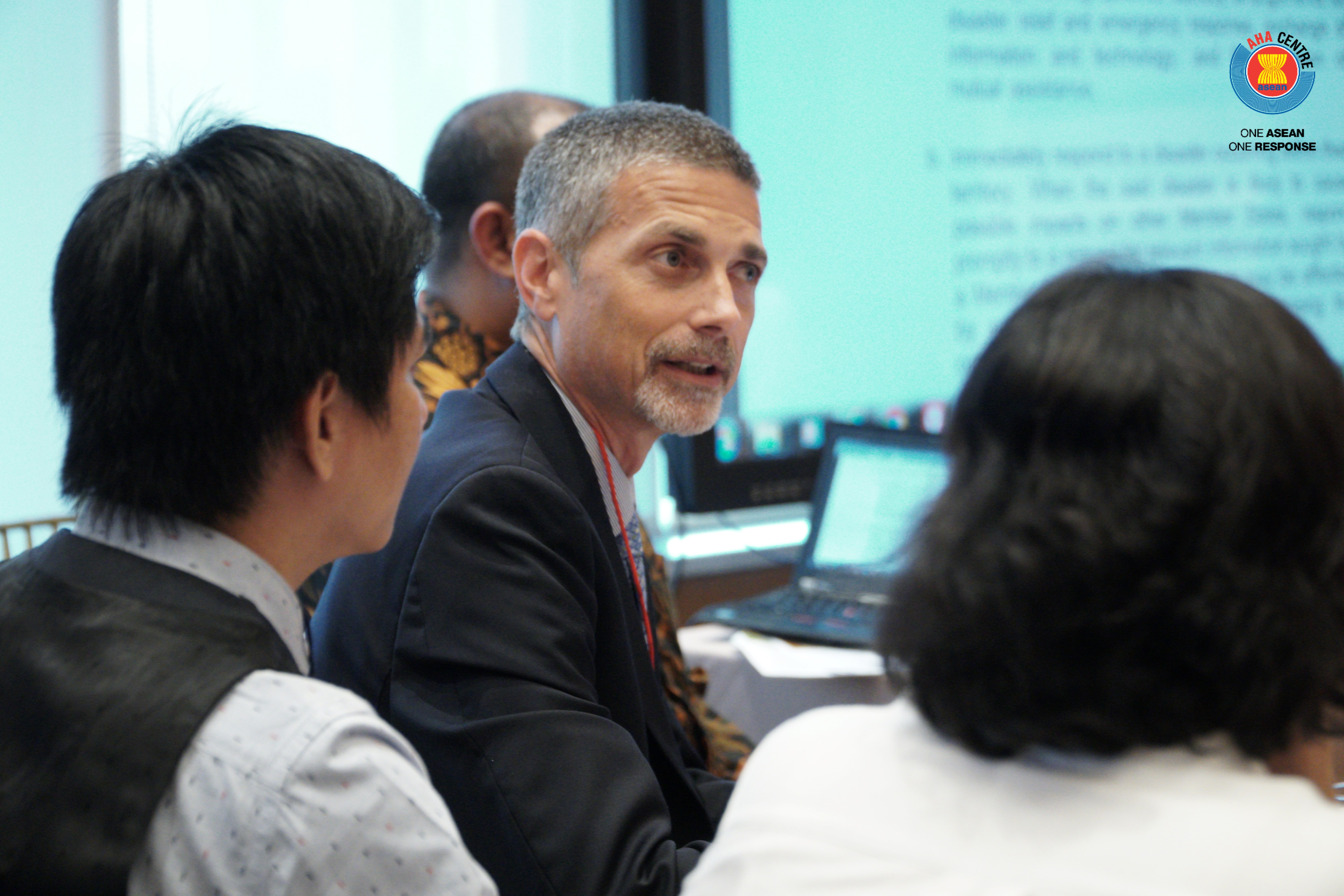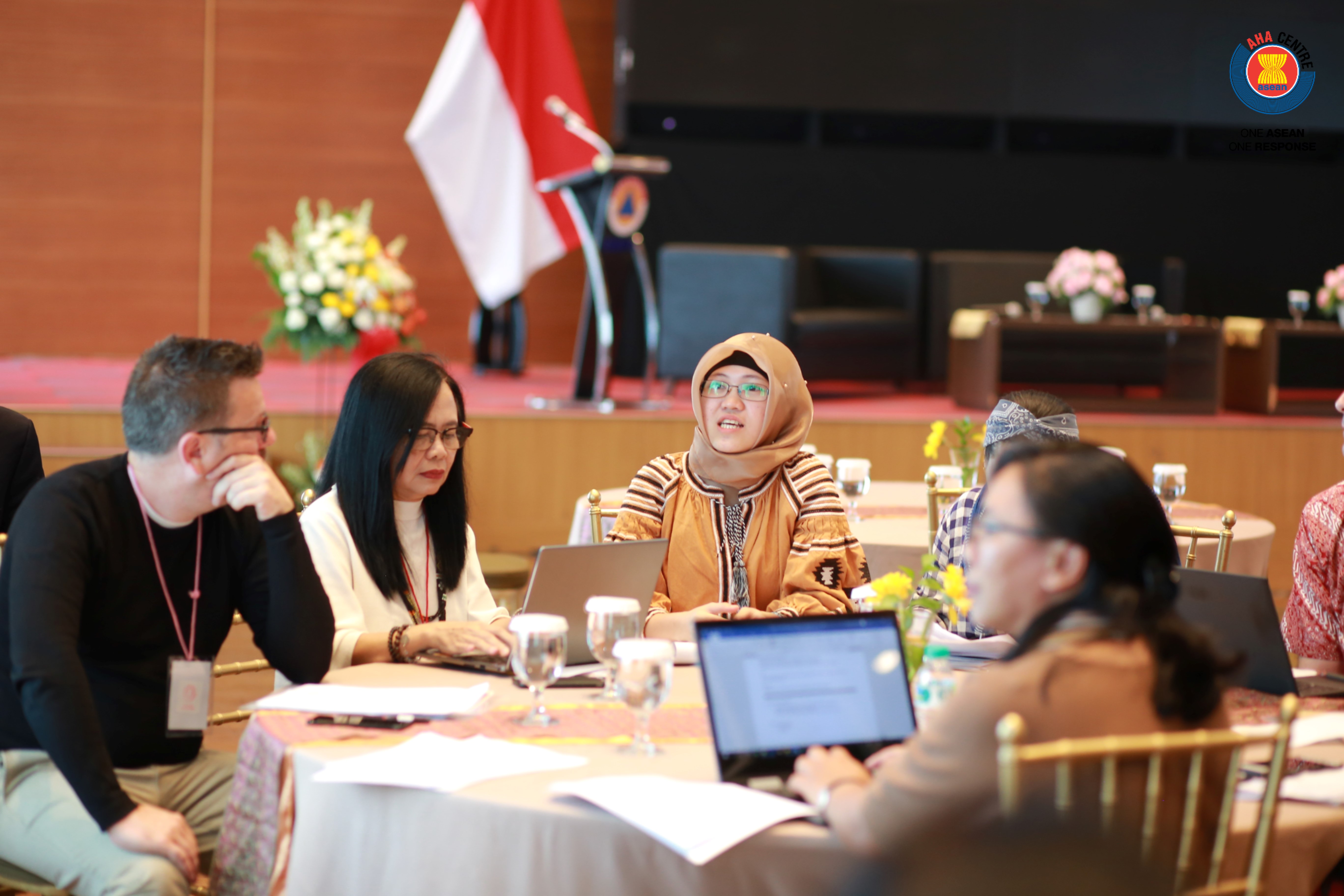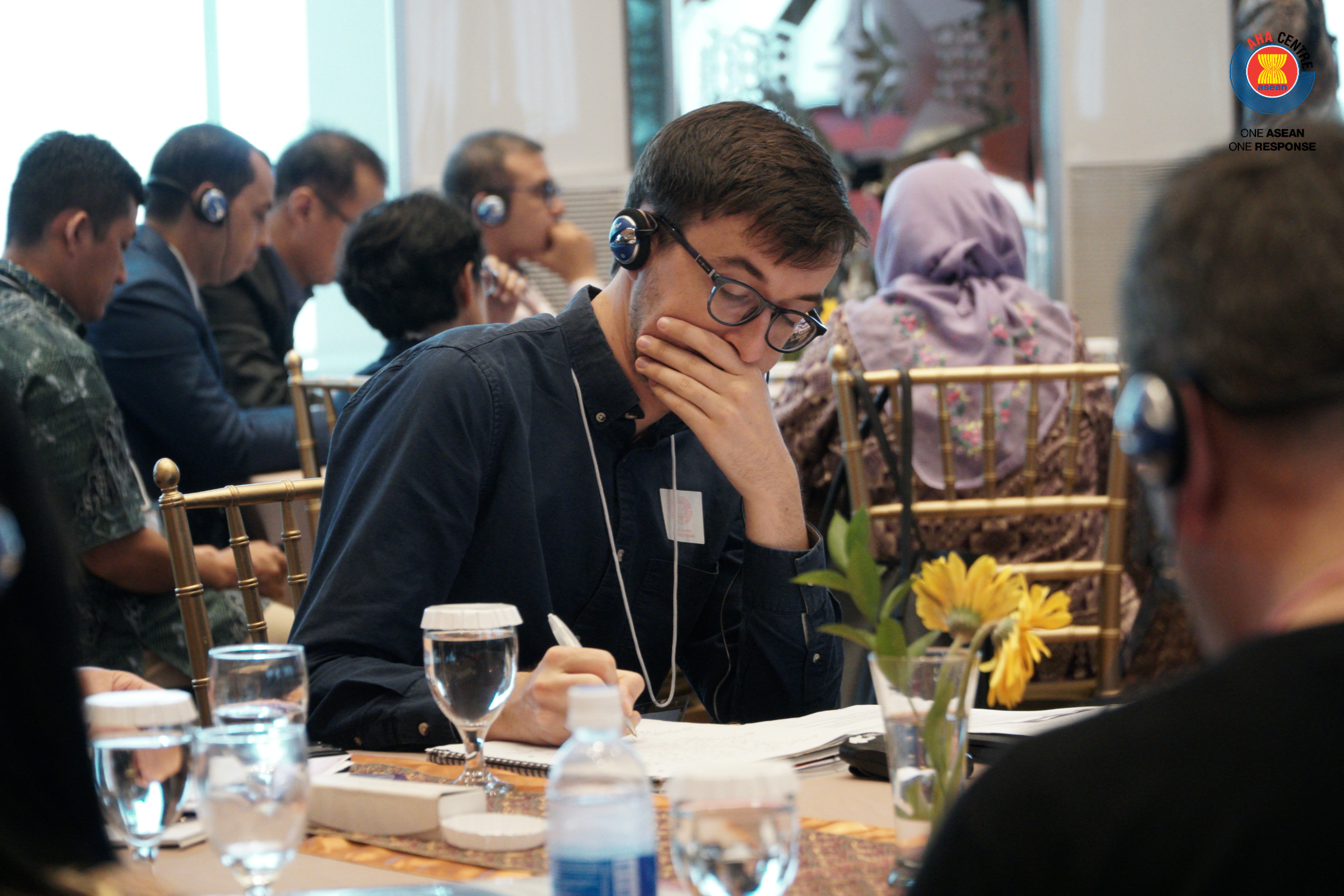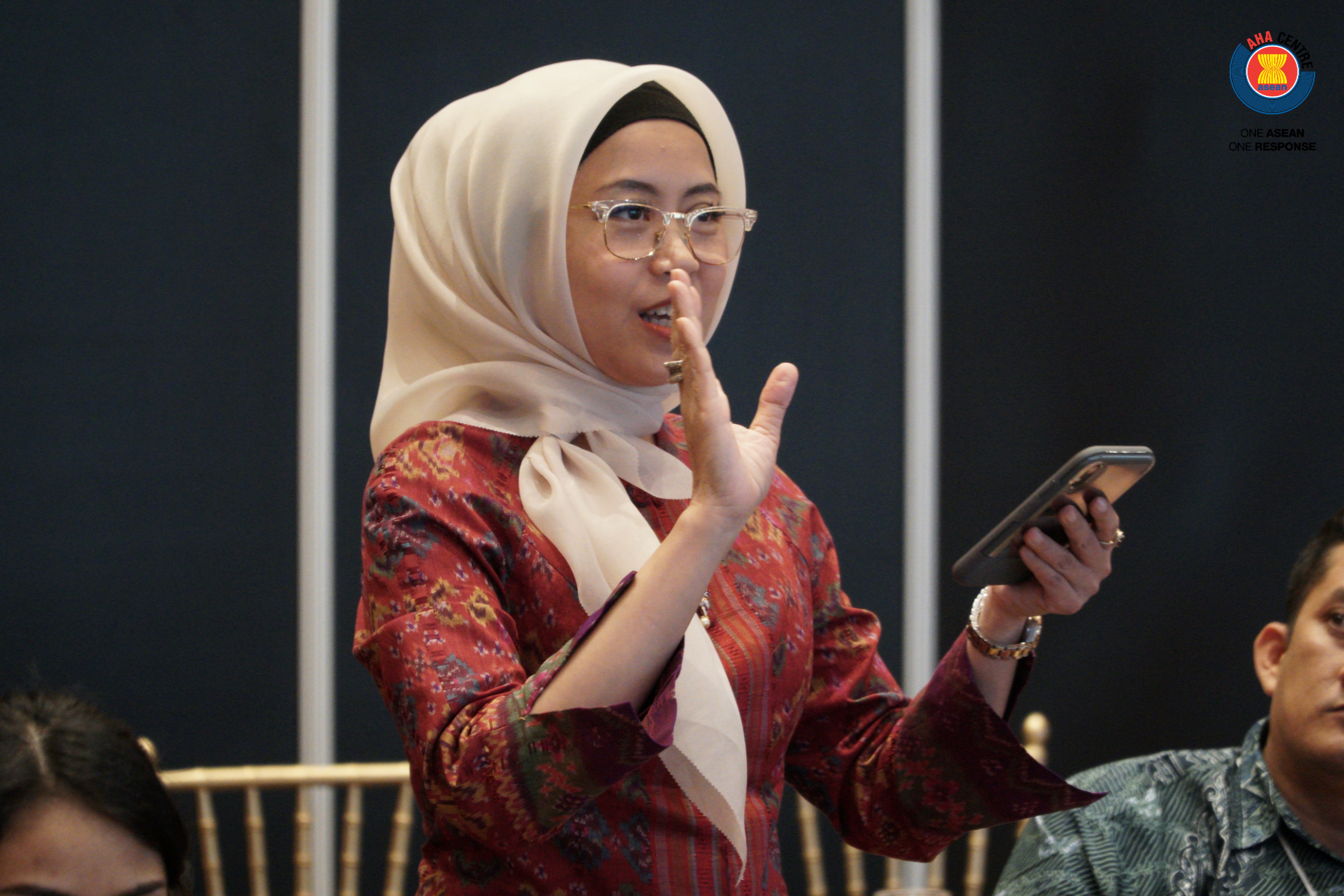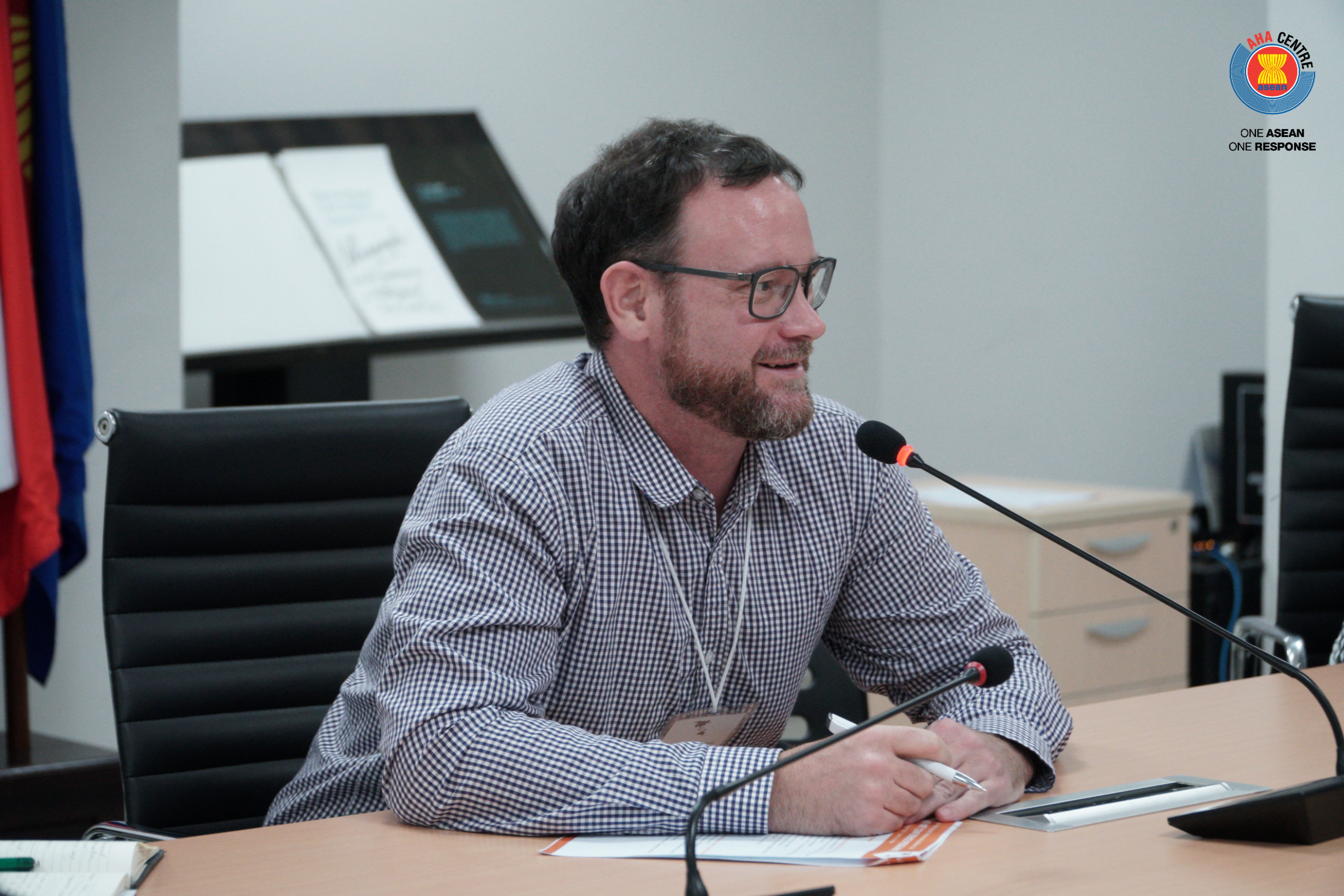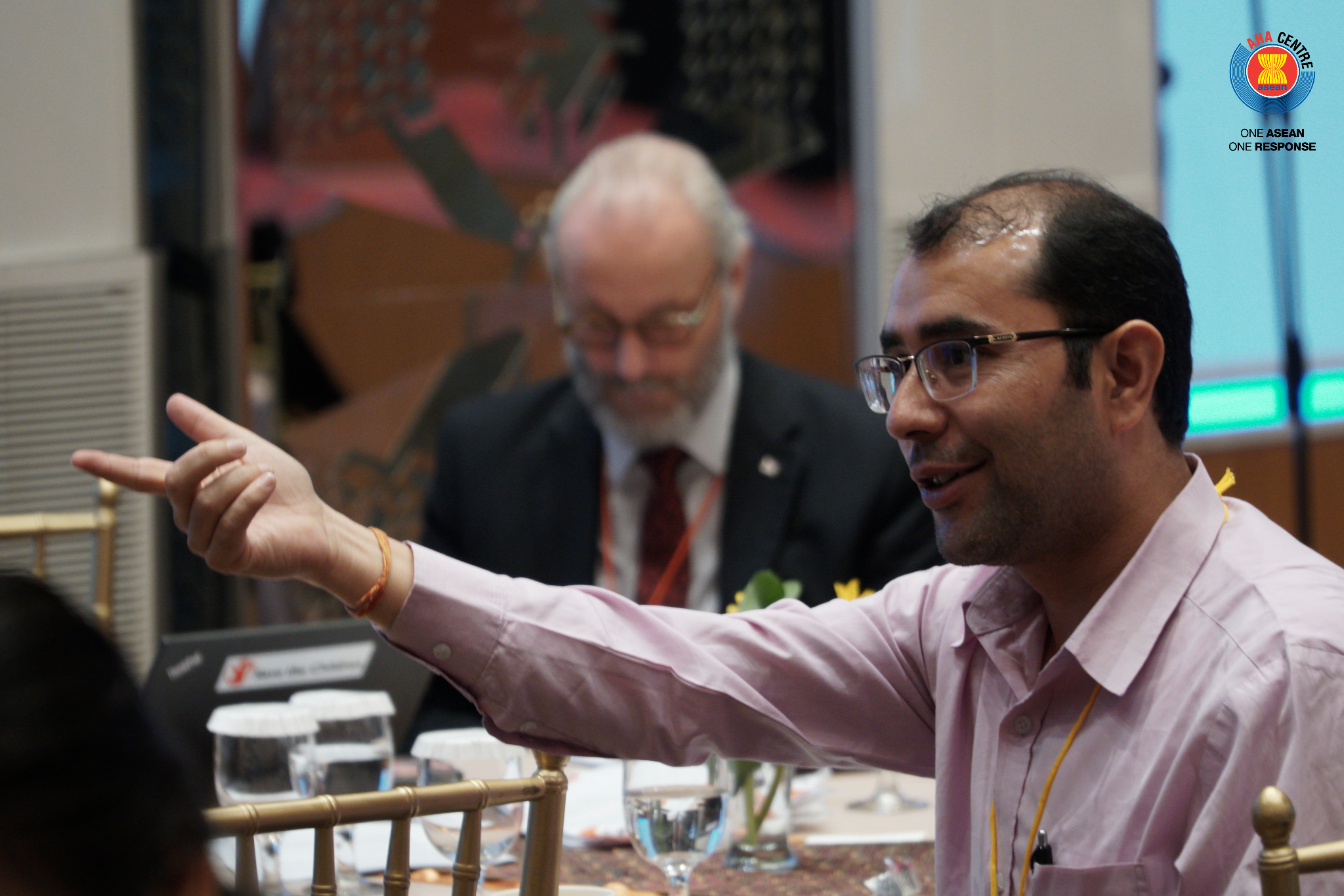This post is also available in: Español (Spanish) Français (French)
Asia Pacific Regional Conference on Localisation
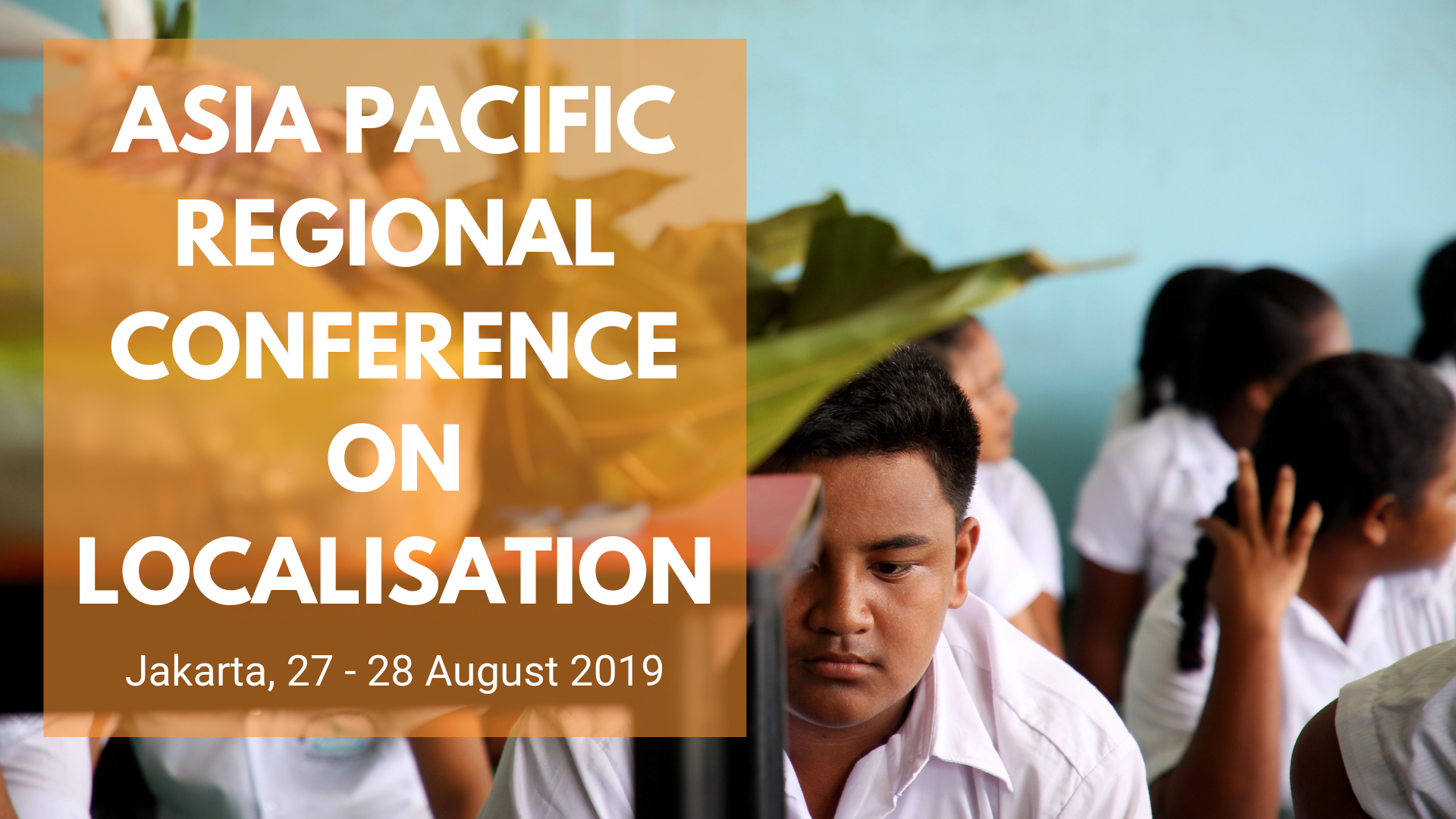
Impressions from the Asia Pacific Regional Conference on Localisation
See what some of our participants had to say about the Asia Pacific Regional Conference in Jakarta on 27 – 28 August 2019.
“We believe that localisation can help bringing assistance closer and faster to the people on the ground, especially during emergencies. For localisation to work during emergencies, however, we need to establish a mechanism that is nationally-led, regionally enhanced, and internationally supported as necessary”
Adelina Kamal“A localised approach to principled humanitarian action has many benefits. It improves local ownership and awareness of aid, promotes its relevance, and allows for a more inclusive response.”
Michael Cottier“The goals of the international humanitarian aid sector are still the right ones, we need to bring effective assistance to the people who need it as quickly as possible, in an impartial way. But we cannot achieve these goals if we keep investing only in international mechanisms. It is time to be transformative – to take on the real and perceived risks of a more locally-led approach.”
Dr Jemilah MahmoodConference Documents
Day 1
Global Developments - Plenary Session
David Fisher, IFRC: Framing Remarks about the Grand Bargain & Localisation Workstream – Progress Report
Wendy Fenton, ODI: Grand Bargain Independent Annual Report – Report
Regina Gujan, SDC: Learnings from the Demonstrator Country Missions (Presentation) – Country Missions Executive Summary
Global Developments - Breakout Sessions
Capacity Strengthening
John Bryant, ODI: Capacity and Complementarity in Humanitarian Responses – Research
Draft Guidance Note on Capacity Strengthening
Financing:
Coree Steadman, IFRC: Country-level Financing Solutions for Local Actors
Partnership
Hast Sunar & Myo Thet Oo: Accelerating Localisation Through Partnerships – Research
Draft Guidance Note on Partnership
Coordination
Katja Rosenstock, Save the Children: Advancing Localisation in Coordination Mechanisms
Draft Checklist and Model Elements for Agreements between Donors and Intermediaries
Gender Responsive Localisation
Gisela Duetting, UN Women: Gender Responsive Localisation
Regional Initiatives & Experiences - Part 1
Breakout Session 1: Women Leadership & DRR
Technical Guidance Note on Gender and the Localisation Agenda
UN Women’s Approach to Financing Women’s Leadership in Humanitarian Action, Crisis Response and DRR
Presentation: Gender-responsive Localisation in the Philippines
Pacific Case Study: Shifting the Power Coalition
Presentation: The Work of Vanuatu’s Gender & Protection Cluster
Video on the Shifting the Power Coalition 2019
Breakout Session 2: Advocacy & Networking
Han Zar Maung, Better Life: Networking and Advocacy Learnings in Myanmar
Rezaul Karim Chowdhury, COAST: Going Against the Tide: Holding Accountablity from the Demand Side; Background Documents:Sustainable partnership with local organizations : Principles and practice; Who is building who’s capacity ? Poaching skilled staff from local organization; Experience – based learning on ultimate road to localization : Campaigners at risk while bottle-necked in top level.; Charter of Accountability for the local NGOs in Bangladesh who have been prepared out of two year process of country wide campaign and participatory discussion.; Charter of Expectation for government, donors, UN agencies and INGOs who have also been prepared out of two year process and participatory discussion.
Breakout Session 3: Financing & Fundraising
Sajid Raihan, START Fund: Localisation in Action
Kevin Lee, SAFER: Shared Aid Fund for Emergency Response Presentation; Background: SAFER Philippines
Fiona Tarpey, Australia Red Cross: Shifting the Funding Model – Experience from HQ based International Agency
Regional Initiatives & Experiences - Part 2
Breakout Session 4: Localisation in the Pacific
Breakout Session 5: Local Disaster Preparedness & Response Capacity
Peter Ophoff, IFRC: Red Ready Project – Introduction to the Project
Asma Saleem, Islamic Relief Worldwide: STRIDE – Localising Emergency Preparedness and Response through Partnerships
Breakout Session 6: Strengthening Governmental Leadership Capacities
Pauline Caspellan, IFRC: What Enables Localisation? Key Considerations for Enabling Legal & Policy Frameworks
Dipo Summa, AHA Centre: The Role of the AHA Centre in Promoting Localisation
Day 2
Roundtable Discussion: Learning about Localisation from the Sulawesi Experience
Setting Key Objectives & Priority Initiatives 2019 - 2020
Background Reading
Main Conference Documents
- Grand Bargain Annual Independent Report 2019 – Executive Summary
- Demonstrator Country Mission Reports – Executive Summaries
- Co-Conveners’ Summary of Progress Report 2018
- Accelerating Localisation through Partnership: Global Research Summary
- Advancing the Localisation Agenda in Protection Coordination Groups
- Humanitarian Advisory Group – Charting the New Norm? Local Leadership in the First 100 Days of the Sulawesi Earthquake Response (Mar 2019)
- Conference Background Note in Bahasa
Further Recommended Reading
- Grand Bargain Annual Independent Report 2019
- Demonstrator Country Mission Reports: Nigeria, Iraq and Bangladesh
- Working Paper: As Local as Possible, as International as Necessary: Understanding Capacity and Complementarity in Humanitarian Action
- Africa & Middle East Conferences Proceedings:
- Day 1 Discussion Highlights: Africa / Middle East
- Day 2 Summary of Group Discussions: Africa / Middle East
Conference Opening
See the Conference Opening Video from the Asia Pacific Regional Conference in Jakarta, 27 – 28 August 2019.

In the Media
Tribunnews.com, 27th August 2019: https://www.tribunnews.com/nasional/2019/08/27/wapres-terima-kasih-dukungan-internasional-dalam-penanggulangan-bencana-di-indonesia
Media Indonesia, 27th August 2019: https://mediaindonesia.com/read/detail/255711-jk-sebut-asia-pasifik-luas-dan-bisa-berbagi-pengalaman-bencana
Detik News, 27th August 2019: https://news.detik.com/berita/d-4682501/jk-minta-bnpb-koordinir-dengan-baik-penanganan-bencana#
On Social Media
Partnering with local actors is key for an efficient humanitarian response. The @AHACentre conference of #Localisation of Aid in #Jakarta ??co-convened by??& @ifrc gathers organisations from the region and beyond to discuss the best ways to do so. https://t.co/AKreRmAGMj pic.twitter.com/QxfGmhdwfB
— Swiss Humanitarian Aid Unit (@SwissHumAidUnit) August 27, 2019
High level panel in Jakarta #grandbargain conference discusses what the Sulawesi experience means for the #localisation agenda. pic.twitter.com/TxnK3Ecbw4
— David Fisher (@David_A_Fisher) August 28, 2019
Technical Consultant Kevin shared SAFER’ advocacy at the Asia Pacific Regional Conference on Localisation of Aid in Jakarta, Indonesia. This event brings together humanitarian actors, donors, and international aid agencies on the opportunities and challenges of localisation. pic.twitter.com/piVnjYDCK3
— SAFER Philippines (@saferpinas) August 27, 2019
Indonesia's Vice President Dr H. M. Jusuf Kalla is in the house of @BNPB_Indonesia this morning, opening the Asia Pacific Regional Conference on Localisation of Aid, hosted by @AHACentre and co-organised by @ifrc and Switzerland. pic.twitter.com/jBLXQCTL9w
— AHA Centre (@AHACentre) August 27, 2019
Here are the 150+ participants from Asia Pacific & beyond who are attending the regional conference on localisation today! Discussions are ongoing on how to reform international humanitarian aid & better promote the role of local actors in relief operations? pic.twitter.com/DmI7K33VNd
— AHA Centre (@AHACentre) August 27, 2019
Can the #humanitarian and crises responses’ systems become more effective? By being more #inclusive of local actors and in particular of women local actors. Fascinating conversations ongoing in Jakarta at the Asia Pacific Regional Conference on Localisation of Aid. pic.twitter.com/m2VQnecm31
— Cecile Aptel (@cecile_aptel) August 27, 2019
Asia Pacific Regional Conference on Localisation of Aid :
— RAZIA SULTANA (@AdvRaziaSultana) August 27, 2019
With UN Women . pic.twitter.com/93VshYCKnh
@BNPB_Indonesia Chief & our ED welcomed VP Jusuf Kalla to the conference. ED @AdelinaKamal encouraged conference participants to step up in localisation through simple but concrete actions. "Commitment to Grand Bargain without action is delusion!" pic.twitter.com/Yq3dsWS7xb
— AHA Centre (@AHACentre) August 27, 2019
Wakil Presiden RI @Pak_JK berikan keynote speech tentang Kebencanaan dalam forum Asia Pacific Regional Conference on Localisation Of Aid di Graha BNPB, Jaktim, Selasa (27/8) siang. (Mur) #ElshintaEdisiSiang pic.twitter.com/r5jnpPkove
— Radio Elshinta (@RadioElshinta) August 27, 2019
Session on Strengthening Govt Leadership Capacity for Localisation at the AP Regional #Localisation Conference. Talked about our new IFRC Checklist on Law and Domestic Preparedness and Response and the IDRL Guidelines. #grandbargain pic.twitter.com/U95P8GJF0N
— Pauline Caspellan (@PCaspellan) August 29, 2019
#AsiaPacific Regional Conference on #Localisation underway and it's clear we need 2 strengthen #feminist practice in #grandbargain processes so that #diverse #womenled orgzns & networks aren't left at the sidelines of discussions - we must #shiftthepower @ActionAid_aus https://t.co/cGi1fPhraw pic.twitter.com/Fpeucq8EDr
— Sharon Bhagwan Rolls (@sharonfiji) August 27, 2019
Attending the Asia-Pacific Regional Conference on #localisation of Aid? Looking for evidence around progress on localisation in our region? Read our recently launched localisation baseline for Tonga with CSFT and @Pacific_2030https://t.co/L0ioA2dQjM pic.twitter.com/KeZMYEfm2a
— Humanitarian Advisory Group (@HumAdGrp) July 18, 2019
Opening of the Asia Pacific regional conference on Localisation of Aid. Key note by the Vice President of Indonesia, H.E. Muhammed Jusuf Kalla. https://t.co/rCJs0eOVlH pic.twitter.com/QDpWM0dVEA
— Piwi Ophoff (@peter_piwi) August 27, 2019
@JemilahMahmood highlights importance of non-aid $ (remittances, private sector, philanthropy) to resource #localisation, don’t rely on intl donors. Big, effective NNGOs like @MERCYMalaysia 100% thru domestic funds. Globalised world means old intl vs national narrative dated. pic.twitter.com/r7fZx64y1n
— Charter4Change (@Charter4Change) August 28, 2019
Opening Session of Asia Pacific Regional Conference on Localisation on 27 August 2019. Jakarta pic.twitter.com/5vBcWQacTZ
— Hanan Hussain (@HananHussain12) August 28, 2019
.@ca_global is in #Jakarta for the Asia-Pacific #GrandBargain #Localisation conference. Our #Myanmar team is presenting learning & best practice on strengthening local #humanitarian leadership #acceleratinglocalisation @centrehl @Charter4Change @LizzHarrison2 https://t.co/3SnpT9kzNS pic.twitter.com/1ApRJ8i4HY
— Christian Aid Global (@CA_global) August 28, 2019
20+ local NGOs joined @Charter4Change & @NEAR_Network prep meeting for #Asia #Pacific #GrandBargain #Localisation event & voted on top priority good practices & challenges in region. Read highlights: https://t.co/iHaZAnLRgk
— Howard Mollett (@HowardMollett) August 27, 2019
@David_A_Fisher, @ifrc Policy & Diplomacy Manager, talks about where we are now on #localisation of humanitarian aid, and what it takes to move the aid community towards its #GrandBargain goals. #asiapacific #localisation #aid pic.twitter.com/7s1YO0wSP8
— IFRC Disaster Law Programme (@Disaster_Law) August 27, 2019
Coree Steadman @ifrc presents good practices in #localisation financing #GrandBargain Asia Pacific regional event @SwissHumAidUnit @Charter4Change @NEAR_Network pic.twitter.com/ZsdNpQ7Yfm
— Charter4Change (@Charter4Change) August 27, 2019
#Pacific organisations will take action on #localisation in the form of VIVA Pacific! Voice, inclusion, Visibility & Agency! Calling for gender and social inclusion as priorities #GrandBargain pic.twitter.com/V7pPjQa20c
— Dr Jemilah Mahmood (@JemilahMahmood) August 28, 2019
Bottomline of humanitsrian response (#Localisation agenda) is about the people affected of disasters; not brands, not organizations and not about funding-Jemila Mahmood of IFRC...@A4EP2 @Charter4Change @RezaKChyBD @HowardMollett pic.twitter.com/5bQRXe42yX
— Nanette S. Antequisa (@Nanet_Antequisa) August 28, 2019
Priorities for follow up in our breakout: Partnership, Inclusion & Participation/Accountability to Affected People, More meaningful & two-way capacity strengthening, Core & Multiyear Funding #GrandBargain #Localisation Asia Pacific regional event pic.twitter.com/klusKPdma9
— Charter4Change (@Charter4Change) August 28, 2019
Australian RC present new funding model. A system of core funding, based on local assessment allowing local partners moving away from project funding. A circuit breaker towards more sustainable funding. No more project management but building relationships. Transformative change! pic.twitter.com/7Pl0m9lJwJ
— Piwi Ophoff (@peter_piwi) August 27, 2019
Community initiatives taken by local women save many lives. By preventing & reducing risks for their families and communities, and responding when crises occur. We must first recognize these and then help these first responders scaling up. pic.twitter.com/wRSnjnsTSI
— Cecile Aptel (@cecile_aptel) August 27, 2019
This site is made possible thanks to support from the European Union and the Government of Switzerland.
